The National Association of Realtors says moratorium will bring “chaos” to rental housing sector and “bring more havoc” to the economy.
Blog
Day: <span>September 2, 2020</span>
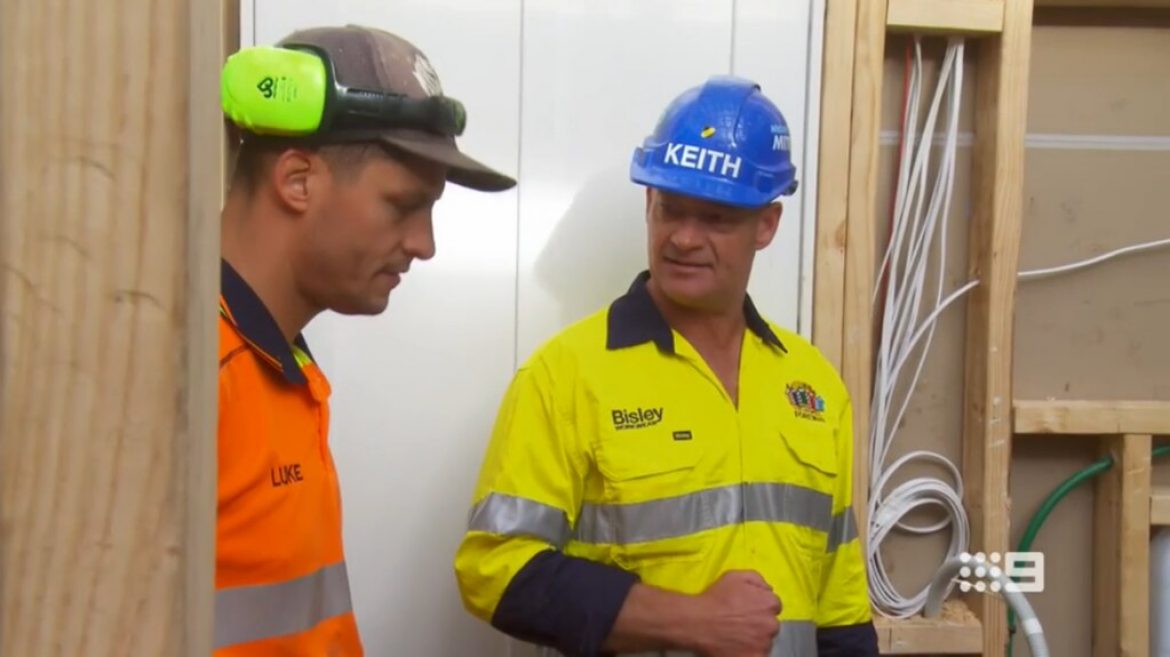
Luke and Jasmin start and end these episodes still mired in a world of pain.
Luke starts the ball rolling with a blow up with foreman Keith, who slams Luke’s builder’s work as “pathetic”, “crap” and “done by five-year olds”.
It would be hard for anyone to take, but given Luke is a carpenter himself, the criticism doesn’t go down well.
RELATED: Block contestant breaks down while another team live the high life
Keith — whose main role seems to be deliberately needling contestants into arguing with him — then suggests they sack their builder, despite the fact he had been the builder on a previous Block-winning house.
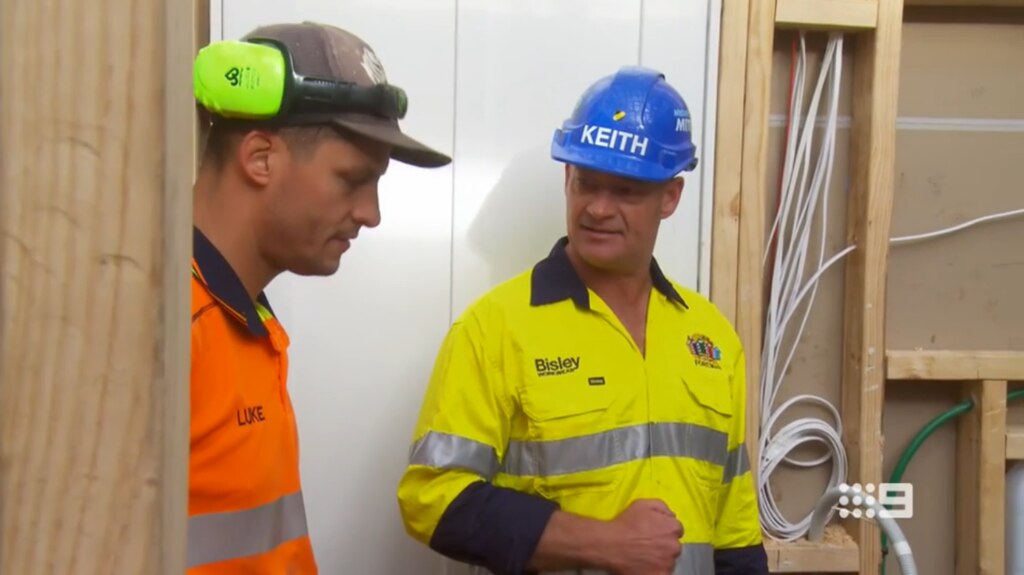
Keith relishing telling Luke his builder’s work is “pathetic”
Luke is steadfast in his loyalty, but an error with a shower floor and a scheduling snafu sees the couple paying three plasterers a total of $1,700 for sitting around on the footpath waiting for an opportunity to plaster that never comes, so maybe Keith had a point.
Either way, it all comes to a head when Keith pulls Luke up for cutting cement sheeting without a dust extractor and threatens him with a dreaded “reinduction”, which would shut his site down for an hour.
“It just seems like every moment Keith is trying to stop me progressing,” Luke says.
Keith is having none of it and is quickly doing his well-oiled “I’m the foreman on this site, show me some respect” routine. (See The Block 2019, 2018, 2017…).
“I’m used to being my own boss and running my own tight ship, and I’ve got to adjust to that,” Luke eventually concedes.
What Luke and Jasmin still can’t seem to adjust to is the fact they’re renovating a 1910 house. Even a special visit and coaching session from judge Darren Palmer doesn’t seem to help matters. He takes them to a spectacular Federation home and they seem inspired, but despite the fact he tells them he thinks the vanity they’ve chosen for this week’s guest bathroom might not be right, they vow to press on, believing even if they don’t impress the judges, they’ll impress a buyer.
“My gut instinct is telling me to do what I love,” Jasmin says.
Also in pain, but for reasons more important than vanity choices, are Daniel and Jade.
Daniel has received news that his beloved grandfather has died. It wasn’t unexpected but watching the pair support one another in their pain is genuinely moving. They are determined to fly home to SA to attend the funeral and be with the family, and almost as moving is Scott Cam’s decision to let Keith and Dan supervise their trades, and even pick up a paint brush, to ensure they still finish their room.
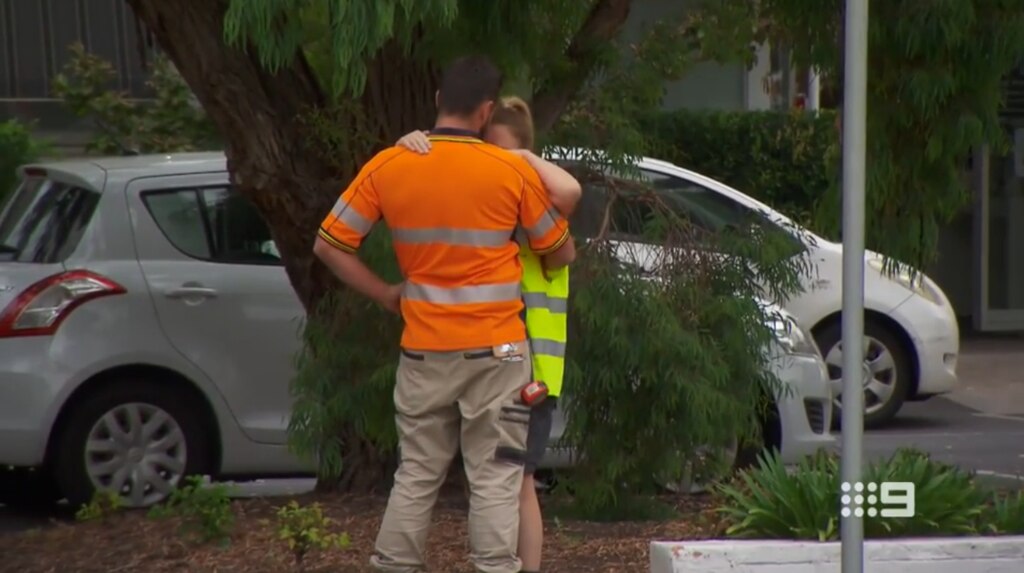
Daniel and Jade after hearing the news that Daniel’s grandfather had died.
Harry and Tash finally get some good luck with a tiler, after three long days of setbacks. After struggling to lock one in they had thought they’d finally struck lucky with Mohammed, who went through the induction process and got his mug on TV, but on the day he was due to work, turned off his phone and failed to show. Luckily yet another ring around produced replacement Sam, who saves the day.
A freak thunderstorm, which dumps 55mL of water on Brighton, sees two houses bearing the brunt. Jimmy and Tam, and Daniel and Jade’s bathrooms are both swimming pools by the morning, and given they had asked Keith’s team to put tarpaulins up and been knocked back, it’s up to Keith to fix it.
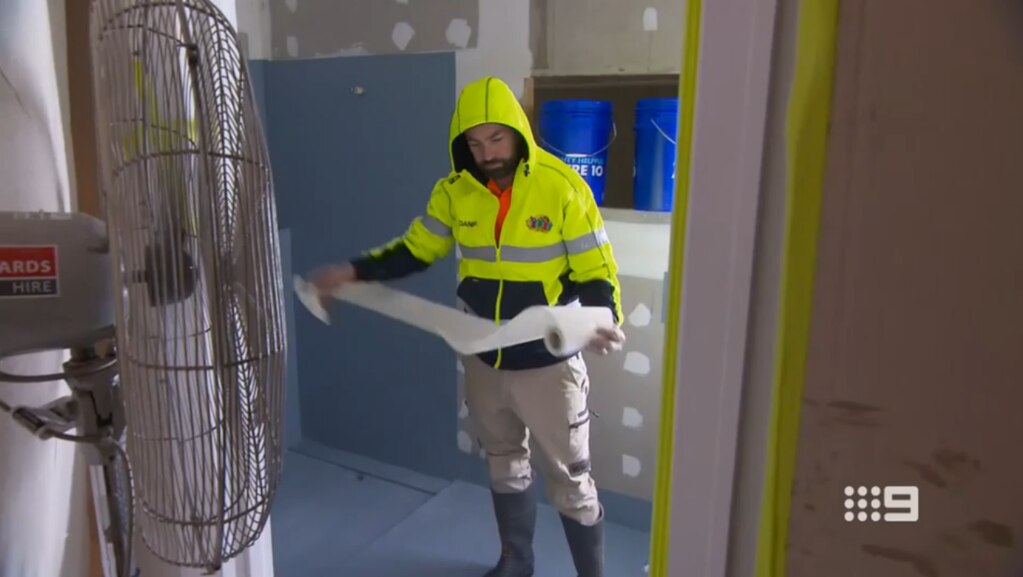
Daniel mops up his flooded bathroom.
He apologises to both pairs, who show the kind of understanding Keith would never show them for a similar error, and the rooms are quickly cleaned up and reinspected.
Jimmy and Tam are continuing to cement themselves as The Block 2020’s teacher’s pets.
Scott Cam is so sure they’ll finish their bathroom a day early he books them a Saturday lunch on him, and Keith almost swoons when he sees Jimmy getting ahead on demolition work in the rest of the house while he’s waiting for his waterproofing to dry (all within the rules provided they don’t start any actual construction).
The pair have found an incredible green rectangular basin and are designing their room around it, and Scott Cam has picked them as the winner before it even goes in.
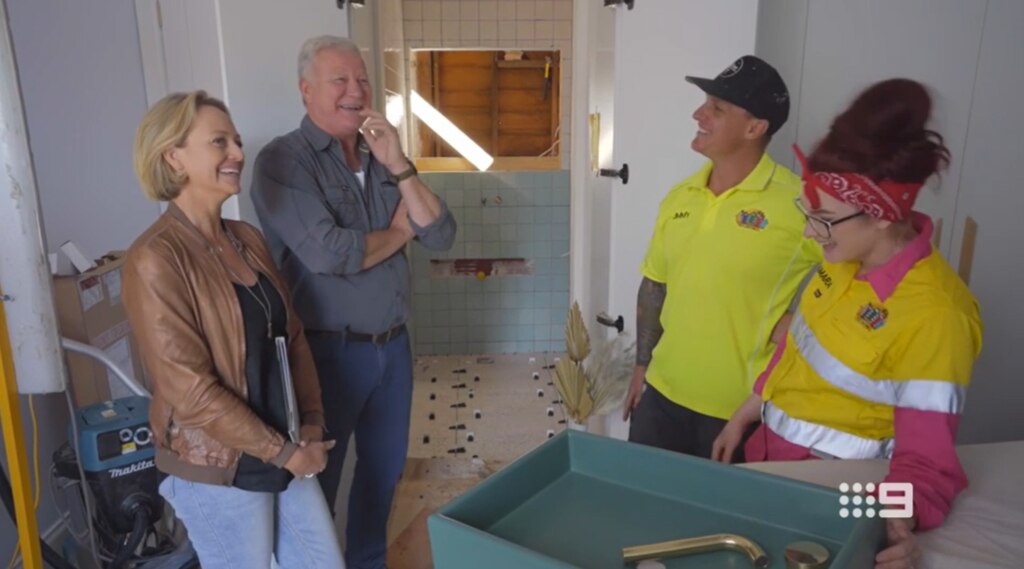
Shelley and Scott admire Jimmy and Tam’s perfect basin.
This week the teams also find out about two Block twists. This year, with Scott Cam handing out their budgets weekly as opposed to in one lump sum, there’s not so much room for extravagance, but he’s made an allowance for one big splurge per team. Each team can come to him once during the competition to pitch a game-changing idea, and if he approves they’ll get the cash to do it.
And the all important auction order will be decided in a new way too: the team which gets the most points from the judges over the course of the entire season decides. It’s Jimmy and Tam’s to lose.
MISSED AN EPISODE?
Episode 5 recap: ‘I’m mourning’: Jasmin’s emotional breakdown
Episode 4 recap: Luke and Jasmin’s big stuff up
Episode 3 recap: “So two years ago”. Team’s boring room slammed
Episode 2 recap: Disappointment as Block houses are handed out
Episode 1 recap: Block 2020 tears start flowing early
The post The Block 2020 episode 6 and 7 recap: Keith brands one builder ‘crap’, but it’s Daniel and Jade who are really suffering appeared first on realestate.com.au.
In this podcast, Century 21 Real Estate’s global CMO Cara Whitley reflects on her career journey and chimes in on the things agents can do to stand out from the crowd.
This week, we’re asking you to chime in and share your favorite marketing campaigns with us — whether it’s someone’s else brainchild or yours. What makes it effective? Why did it resonate with you?
Although there are thousands of reasons deals go wrong, there are seven seemingly innocuous words that often cause negotiations to fall apart. Eliminating these words from your negotiation vocabulary will help you be stronger and more confident at the negotiation table.
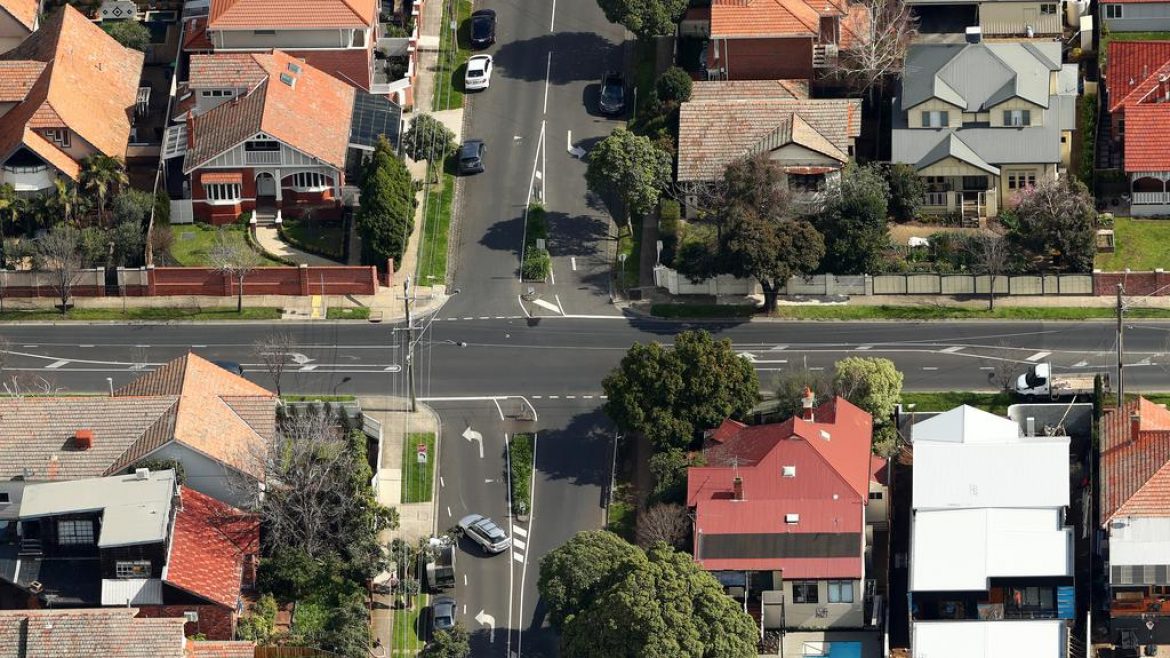
If COVID-19 has come with a silver lining this could be it – rents are at their cheapest in almost 13 years.
The increased availability of rental properties and the decreased number of those looking for such properties have been considerable downward pressure on prices.
The percentage of income needed to meet rental payments fell to 23.3 per cent in the June quarter (well short of the maximum 30 per cent considered appropriate), according to the Real Estate Institute of Australia.
This is the highest level of rental affordability since December 2007.
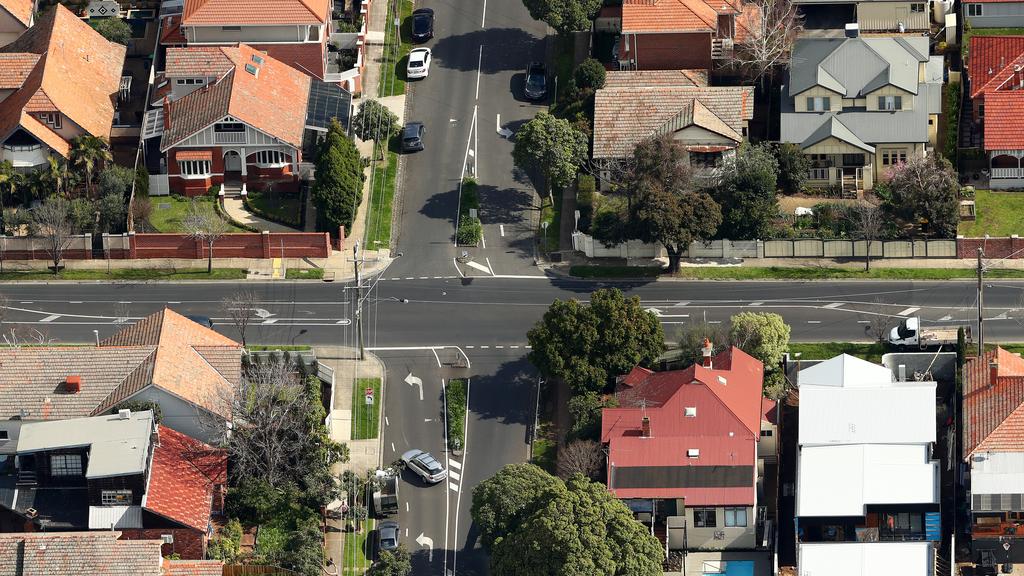
It’s a renter’s market. Picture: Getty
MORE: How first-home buyers can cut 4 years off their deposit
Homebuyers rocked by lack of confidence
The ACT is the only state or territory where rents rose in the June quarter. Home values in the seat of parliament have also been in positive territory, with the burgeoning public sector, who remained employed despite the pandemic, often pointed to as a reason why.
Nationally rents are down 0.5 per cent on this time last year.
“This can be mainly attributed to the reduction or stabilisation or rents,” REIA president, Adrian Kelly said.
“Rental affordability has not been this high since December 2007, a positive for renters in these COVID times.”
Prior to the coronavirus pandemic, the increasing number of households renting their home, according to the Australian Bureau of Statistics this figure jumped from 27 per cent in the decade from 1997-98 to 2017-18 by five per cent had placed upward pressure on rent prices.
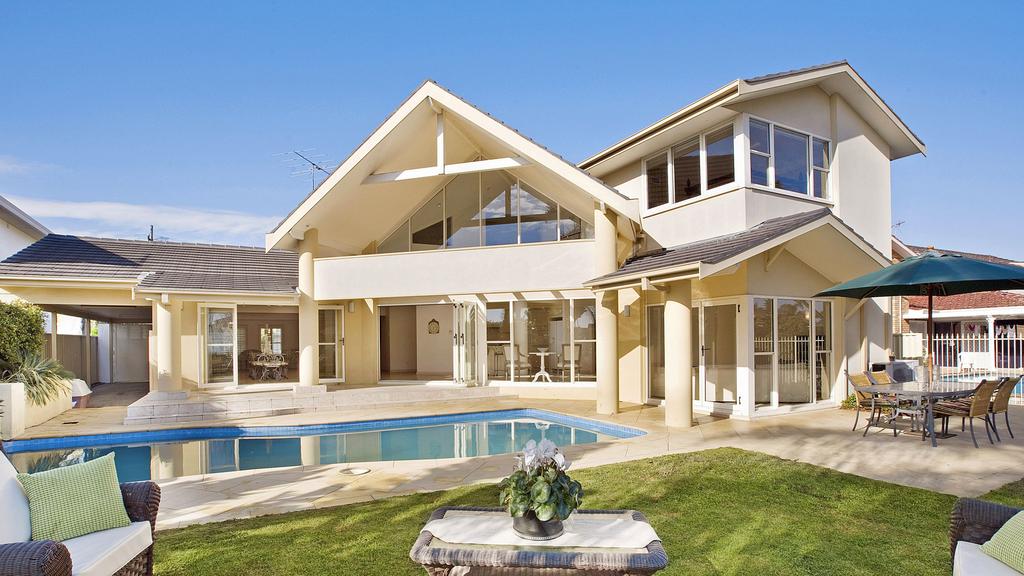
The rental market has been flooded with properties during the COVID-19 pandemic.
For so long it has been a landlord’s market but now economic factors are falling in favour of tenants, and like the property sales segment, the rental market is beginning to splinter further.
“The west coast, Western Australia is doing well, stock levels are low and vacancy rates are low, but the east coast NSW is quite a different story, stock levels are high and vacancies rates for the first time are climbing close to four per cent,” said Maria Carlino, National Head of Property at The Agency.
“One sector of the market that is doing well for us is the executive market, $2,000 + per week. Victoria is at a standstill with lockdown measures, viewings are being done via video and our biggest concern in there is the mental and physical health of our clients.”
Inner city rental markets have been hit hardest, especially in Melbourne and Sydney as tenants have lost their jobs and moved in with family or friends. The absence of global travel has also meant a slump in international students and those who might have rented their properties for short stays on platforms such as Airbnb are no looking for longer term tenants.
MORE: Byron Bay’s popularity with seachangers ‘peaking’
Australia’s most wanted streets revealed
“The fact is there are more properties on the market and that is what’s pushing prices down,” said Prue Bryant, Rental Department Manager at Brad Teal.
“We go through stages in the real estate market where things favour landlords and vice-versa and now is a good time for tenants. People are looking to life in different areas they might not have been able to afford before, landlords are potentially looking to reduce rents to secure tenants and some homeowners are looking to rent out their own homes and then rent somewhere else they might prefer to live because of convenience or lifestyle”
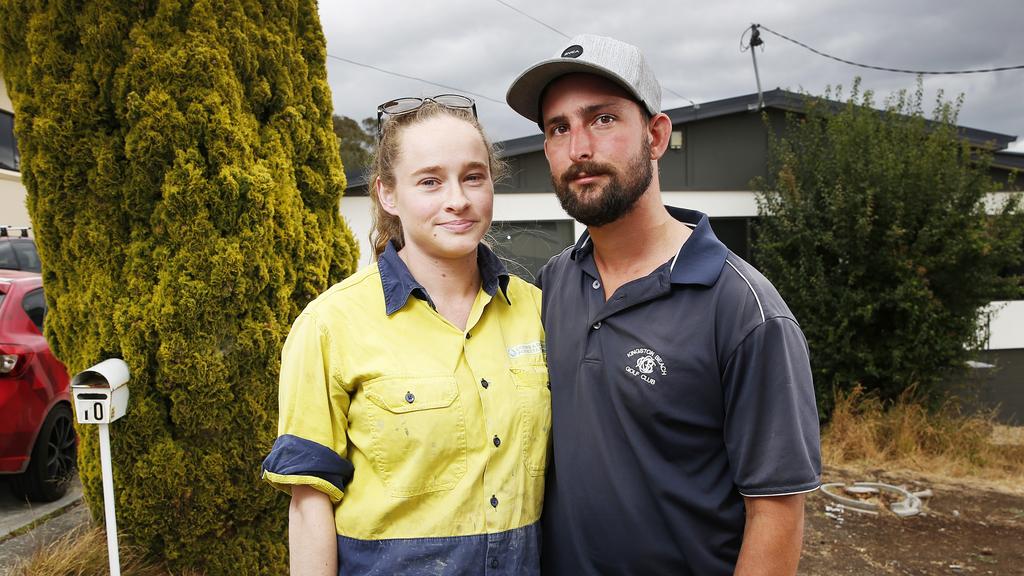
Competition for rental properties is fiercest in Tasmania as Nikki Fischer found out Picture: Zak Simmonds
According to the REIA report, in NSW the proportion of income needed to pay the median rent is 27.5 per cent. In Victoria the figure is lower at 22.5 per cent, in Queensland and South Australia it is 21.5 per cent. In WA rental affordability is down 0.7 per cent on last year to 24 per cent.
That figure is the highest in Tasmania at 29 per cent, another indication of the strongly performing real estate market there. In the Northern Territory it is 20.4 per cent and in the ACT it is 22.3 per cent.
“Owners need to be aware of what their local markets are doing, and shift asking rental prices if required,” Ms Carlino said,
“Choice in the market creates competition therefore rental properties need to shine. This may be an ideal time to do that renovation.”
MORE: The suburbs we all want to live in
Radical way COVID-19 is changing our homes
The post Best rental affordability since 2007, says the Real Estate Institute of Australia appeared first on realestate.com.au.
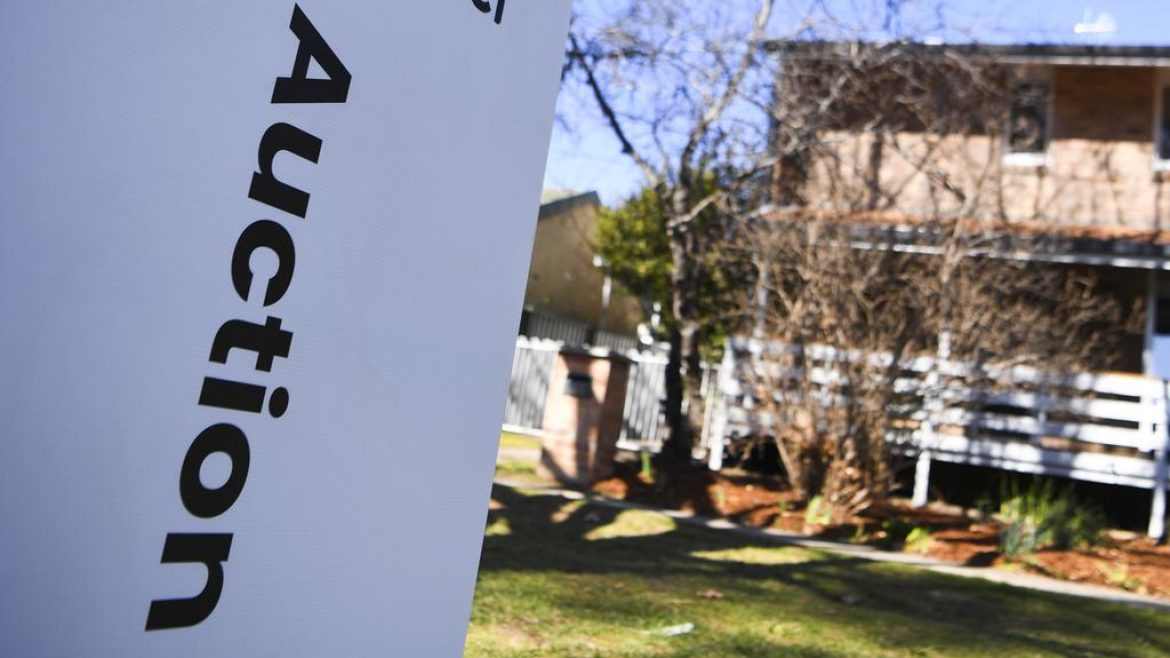
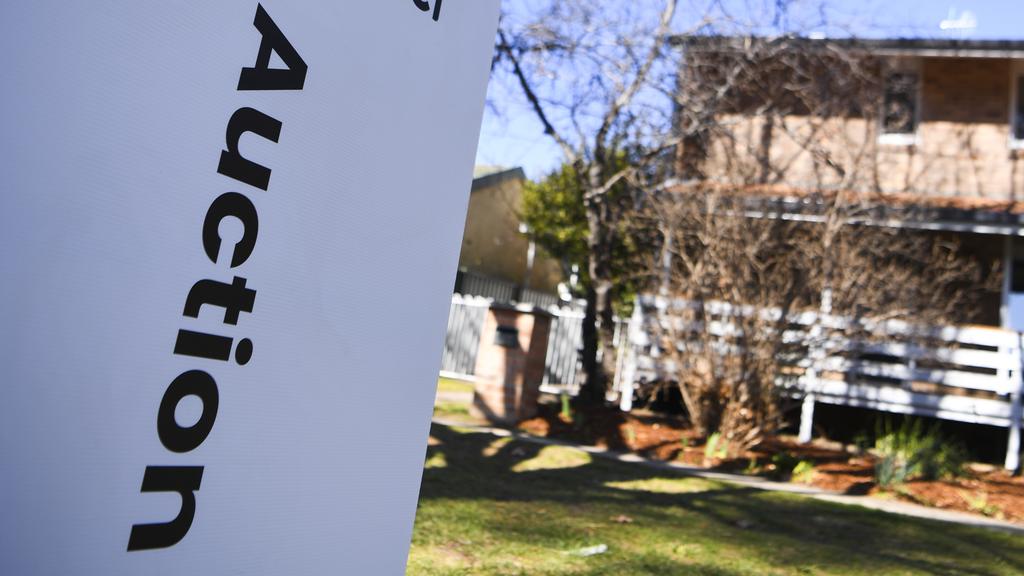
Competition in Australia’s home loan lending market is heating up. Picture: Lukas Coch/AAP.
Competition in Australia’s home loan lending market is heating up, with a number of providers offering rates below 2 per cent.
Prospective home buyers are now able to seek out bargain basement loans with 9 lenders now offering variable and fixed interest rates as low as 1.9 per cent.
The low interest rate environment is being fuelled by the Reserve Bank of Australia’s decision to maintain the official interest rate at 0.25 per cent while the economy recoups from financial havoc wreaked by the coronavirus pandemic.
Low rates set by the RBA enable financial institutions to borrow money at a reduced cost, which supports cheaper loans to businesses and households.
The central bank has also implemented a term funding facility due to COVID-19, another mechanism to ensure the money market is provided with a cheap source of liquidity.
On Tuesday, the RBA decided to increase the funding facility by a further $110 billion.
RateCity research director Sally Tindall said the monetary policies implemented by the RBA would likely keep rates at record lows.
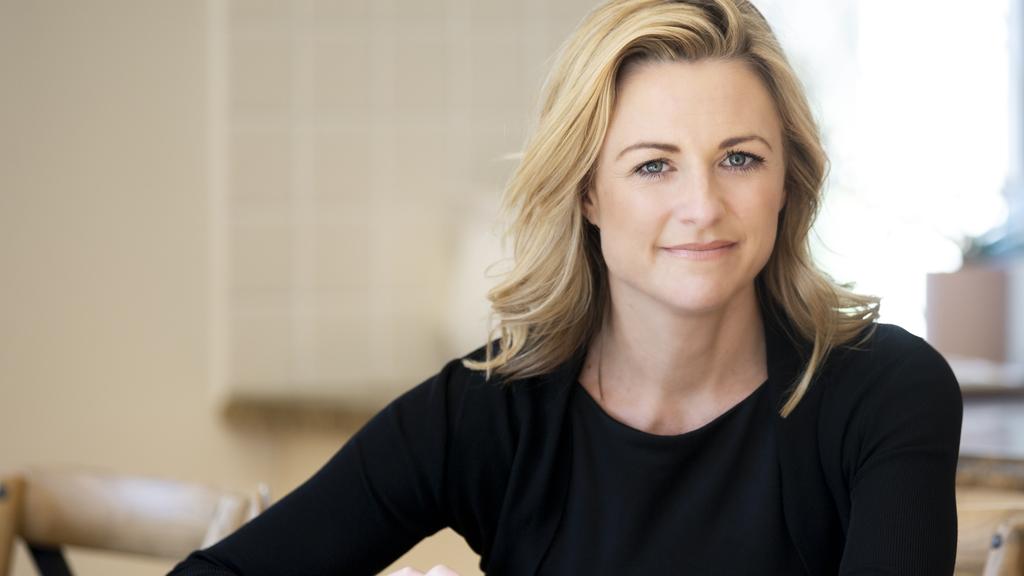
RateCity research director Sally Tindall says record low interest rates look set to stay. Picture: Supplied.
“The expanded term funding facility will also help keep rates at record lows for a number of years and could potentially prompt some banks to cut new customer rates even further,” she said.
“This week, Reduce Home Loans launched a new introductory home loan for owner-occupiers with a starting interest rate of just 1.90 per cent.”
The under 2 per cent club is entirely made up of smaller lenders including Easy Street, which is offering a variable rate of 1.95 per cent, and Homestar Finance, which is advertising a one-year fixed rate at 1.98 per cent.
However, Ms Tindall warned a number of these smaller lenders have very specific lending requirements, such as limits to borrowing amounts and location.
“Many of these sub-2 per cent details come with very specific terms and conditions,” she said.
“Whether it’s a honeymoon deal, a fixed rate or a cashback special, customers should read the fine print carefully and do the maths to make sure they end up ahead.”
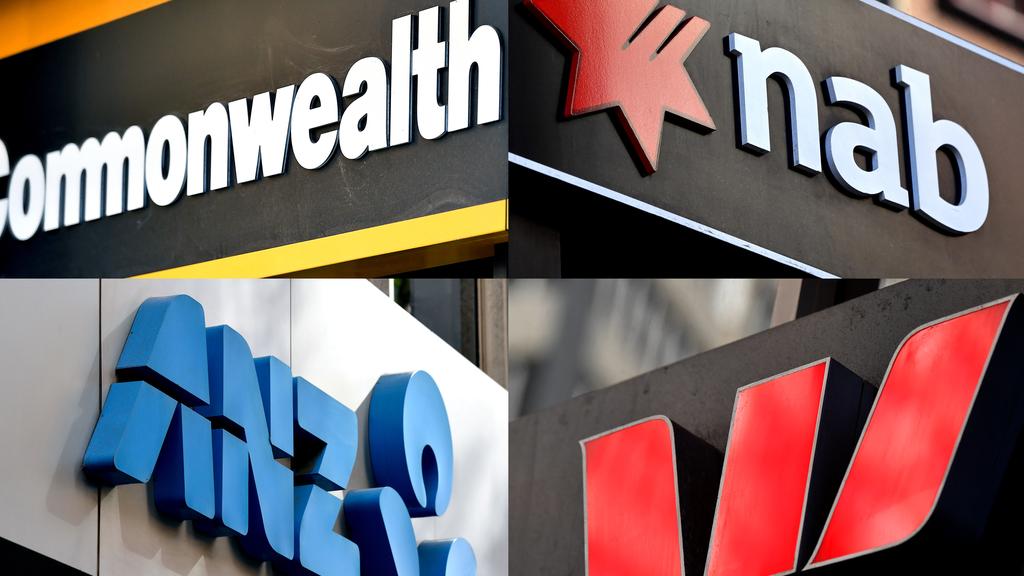
Australia’s major banks are only offering rates at 2.19 per cent, while smaller lenders have fallen below 2 per cent. Picture: Joel Carrett/AAP
Hume Bank, which is offering at 3-year fixed rate at 1.99 per cent, only allows a customer to borrow the money at the specified rate if the property is 150 kilometres from the Albury Post Office in regional New South Wales.
Other loans also revert to higher interest yields after a certain date or period.
“While a rate cut is on the cards, the RBA board is going to want to keep it in its hand until absolutely necessary,” Ms Tindall said.
“Any cut to the [official] cash rate down to 0.10 per cent is likely to happen in 2021.”
Australia’s big four banks are offering two-year fixed rates starting at 2.19 per cent and variables rates from 2.69 per cent.
Both Westpac and NAB are advertising variable rates at 2.69 per cent, while Commonwealth Bank is offering 2.79 per cent and ANZ’s is 2.72 per cent.
RATES UNDER 2 PER CENT
The post Australian lenders are offering bargain home loan rates appeared first on realestate.com.au.
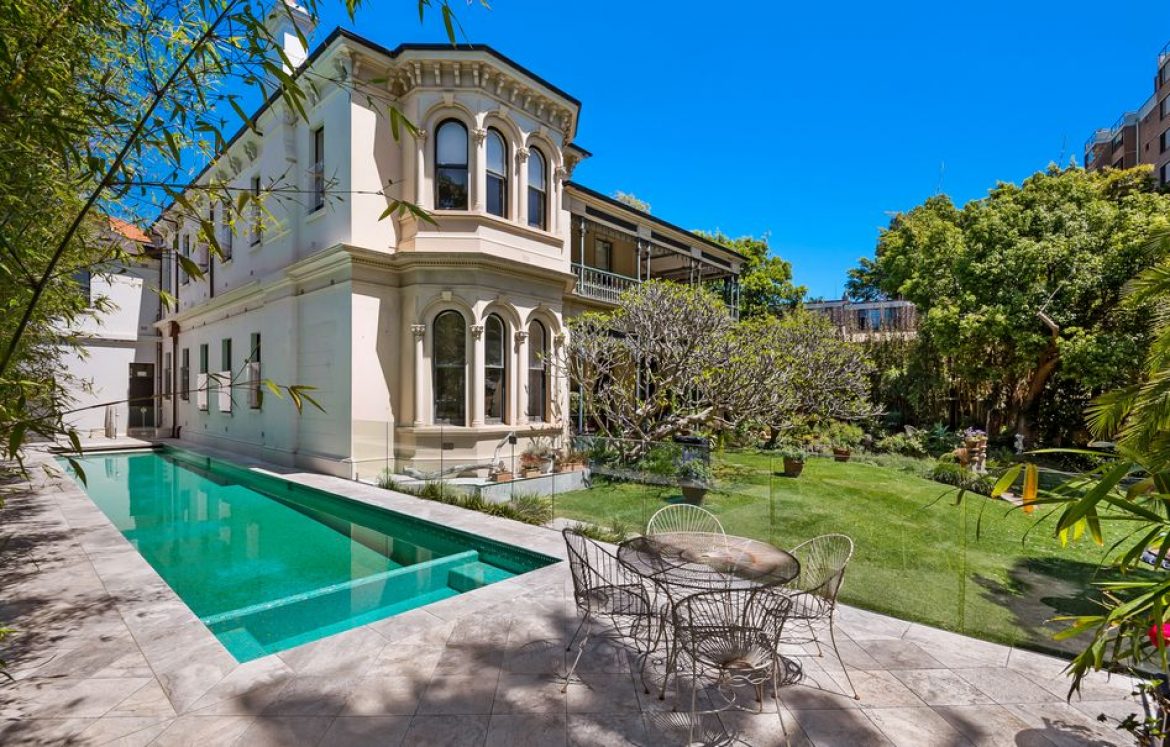
There’s no better time to experience living in a lavish home than right now with more former short-term rentals coming on to the market than ever, largely due to the impacts of COVID-19.
Living in luxury (at least temporarily) is made possible in these lavishly-styled furnished rentals across Australia, many of which are former Air Bnbs.
Since COVID-19 hit, there has been a flurry of furnished rentals come onto the market. The national number of furnished rentals spiked around April with the week of the 3-9 April showing the most listings appear in the last three months on realestate.com.au. Queensland and New South Wales boasted the highest number of new rental listings in that week.
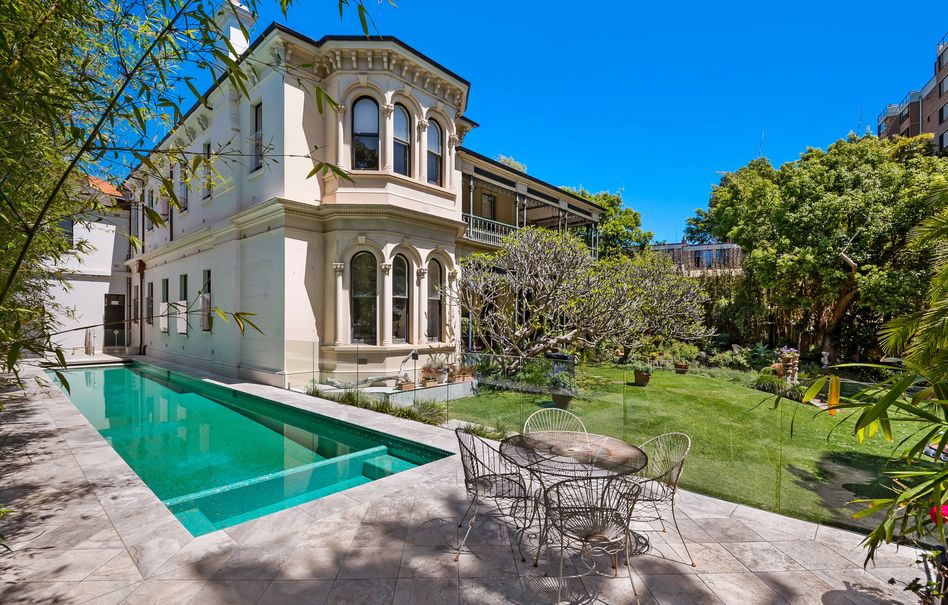
Now is the perfect time to nab yourself a next-level lavish rental. Picture: realestate.com.au/rent
As our borders remain tightly shut, many luxurious holiday rentals, once catering largely to international holidaymakers, lay untenanted, and their landlords are casting the net wider to find more permanent residents.
Here are the most lavishly decorated furnished rentals on the market right now.
1. 2 Darley Street, Darlinghust, NSW
2 Darley Street

This over-the-top mansion could be the perfect COVID hangout. Picture: realestate.com.au/rent

Each room has been decorated with eclectic pieces. Picture: realestate.com.au/rent

Fancy learning piano during lockdown? Picture: realestate.com.au/rent

There are 7+ bedrooms in the house. Picture: realestate.com.au/rent

Of course, every mansion needs a pool. Picture: realestate.com.au/rent
This beautifully Italianate manor in Sydney’s Darlinghurst will make its new residents feel as though they are living in a museum.
The home has seven bedrooms and six bathrooms, with a pool, several sunrooms and a completely self-contained apartment.
It was originally built for renowned pastoralist Edward Chisholm in the 1880s set on a lavish 2,716 square metre property right in the heart of Sydney.
The price is not advertised, so best to get in touch with the agent, Morag Christie from Sotheby’s.
2. 12 Duringan Street, Currumbin, QLD
Everyone in Australia is most likely dreaming of living here right now, where every day would feel like a holiday.
This four-bedroom, three-bathroom home along the Gold Coast is a contemporary solution to beachside family living.
The stylish furniture has gives the home a modernist feel with timber and leather pieces throughout.
12 Duringan street
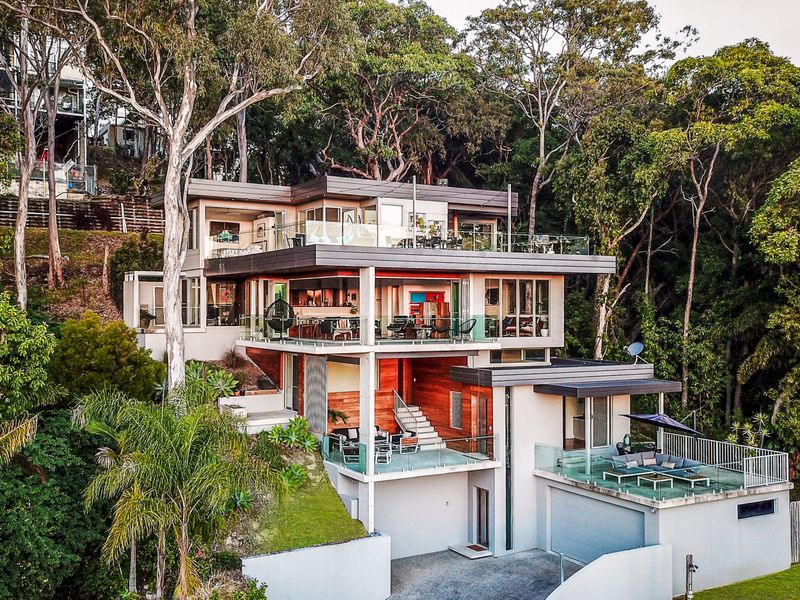
How about renting this contemporary mansion? Picture: realestate.com.au/rent

The views from the home are spectacular. Picture: realestate.com.au/rent

Bi-fold doors allow a lovely breeze to roll in. Picture: realestate.com.au/rent

Wake up to this every morning. Picture: realestate.com.au/rent
There also seems to be an abundance of hammocks and swinging chairs at the new tenant’s disposal.
The price is $2,900 per week with an eye-watering bond of $11,600; any bored millionaires out there looking for a change of scene?
3. 2 D’Entrecasteaux Drive, North Bruny, TAS
The address might have friends guessing you’ve relocated to France, but this hideaway is actually located on Bruny Island.
Surrounded by bushland with stunning water views, this furnished rental immerses its residents in nature.
North Bruny rental

Surrounded by Bruny Island’s natural habitat. Picture: realestate.com.au/rent

The home has been styled with all modern appliances, including state-of-the-art television and kitchenware. Picture: realestate.com.au/rent

Isolation at its finest. Picture: realestate.com.au/rent
The home has three bedrooms and two bathrooms, along with room for an extensive car collection, advertised with seven spaces.
The home is currently for sale and the owners have decided to rent it out for a three-month lease at $600 per week while they find a buyer.
Not bad for a slice of paradise!
4. Exclusive Darling Point address, NSW
This rental is so exclusive it doesn’t have a listing address or the price attached to it. Think of it as the POA tag you see on items in the really fancy stores.
The furnished five-bedder, with a whopping seven bathrooms, overlooks Double Bay to Point Piper Harbour and comes fully furnished with everything the tenant needs to just move straight in, sadly wine bottles pictured not included.
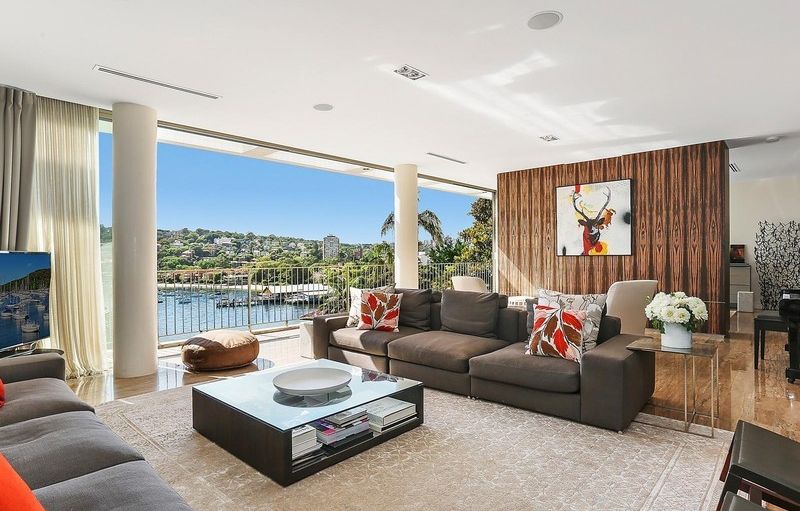
Water views for days at this rental! Picture: realestate.com.au/rent
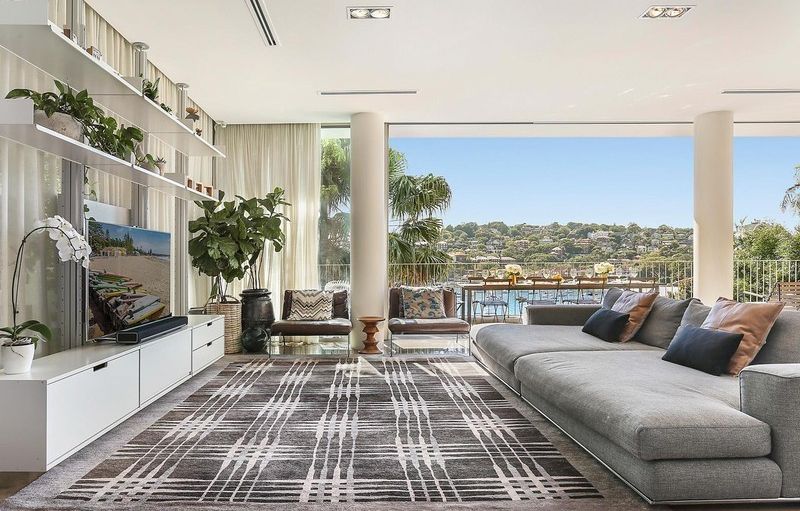
The bi-fold doors create the perfect indoor-outdoor zone. Picture: realestate.com.au/rent
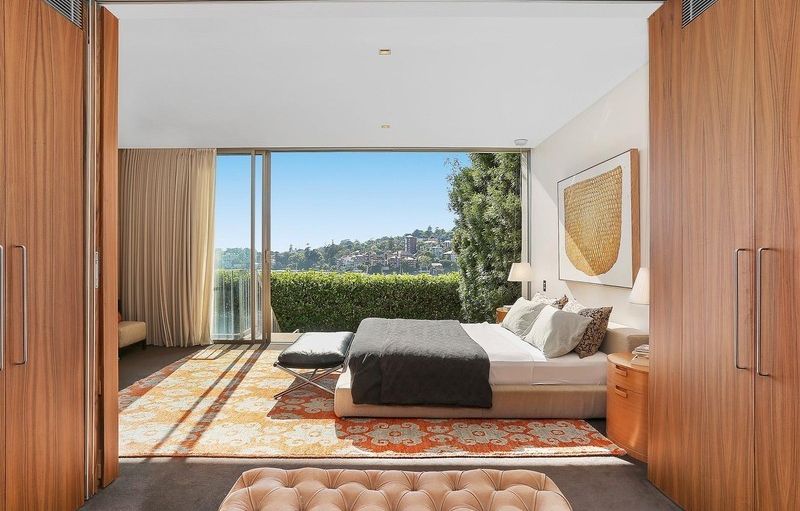
The master bedroom is a restful spot. Picture: realestate.com.au/rent
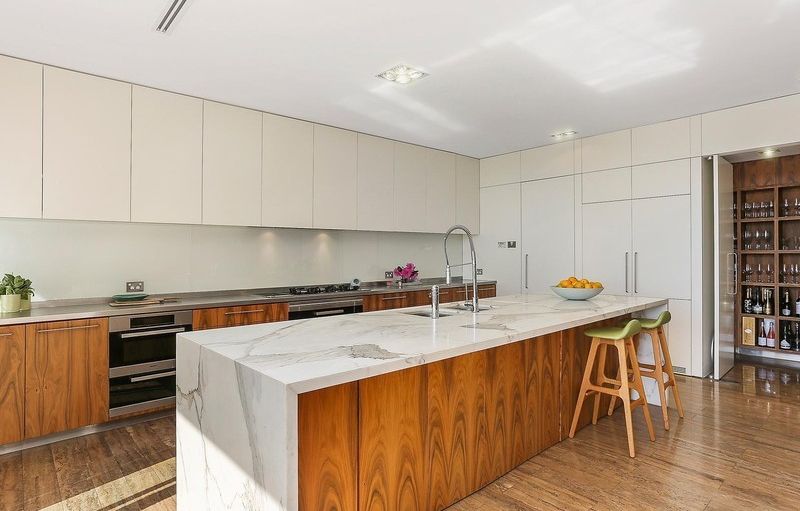
Pretend that your keen eye for design brought this home together. Picture: realestate.com.au/rent
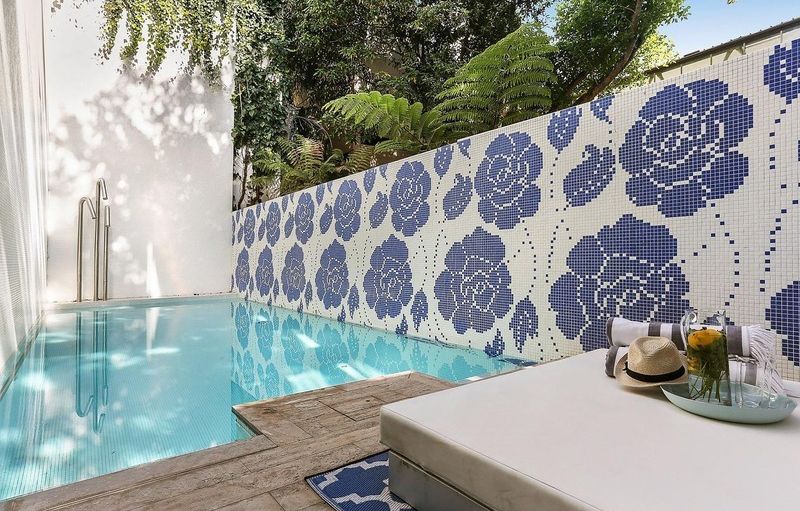
The pool area features a stunning mosaic. Picture: realestate.com.au/rent
The home is located on a quiet cul-de-sac and has all the modern amenities to make life a bit more fun including an in-ground saltwater heated pool, a landscaped gardens, four-car garage and an epic audio system.
Get in touch with listing agent Alex Tinsley from The Agency to find out more.
The post 4 lavish furnished rentals you could temporarily live in appeared first on realestate.com.au.
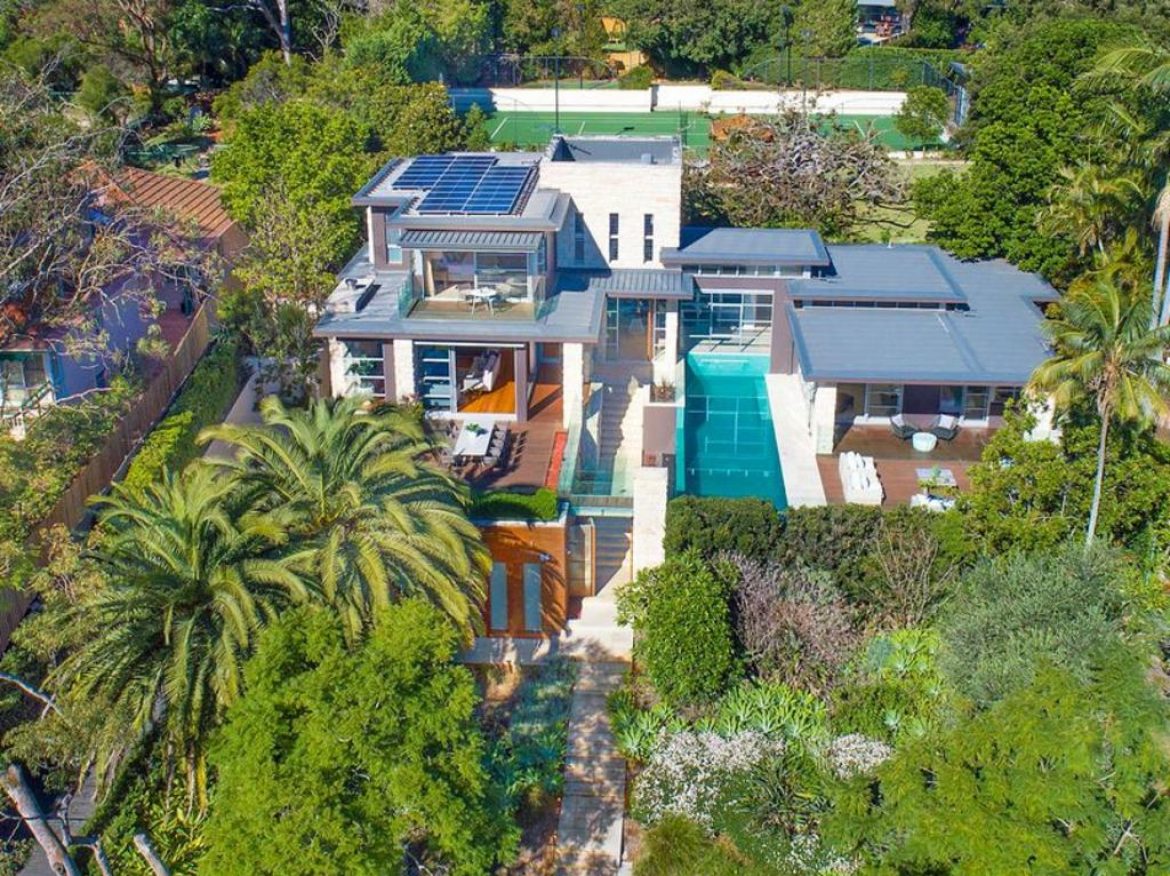
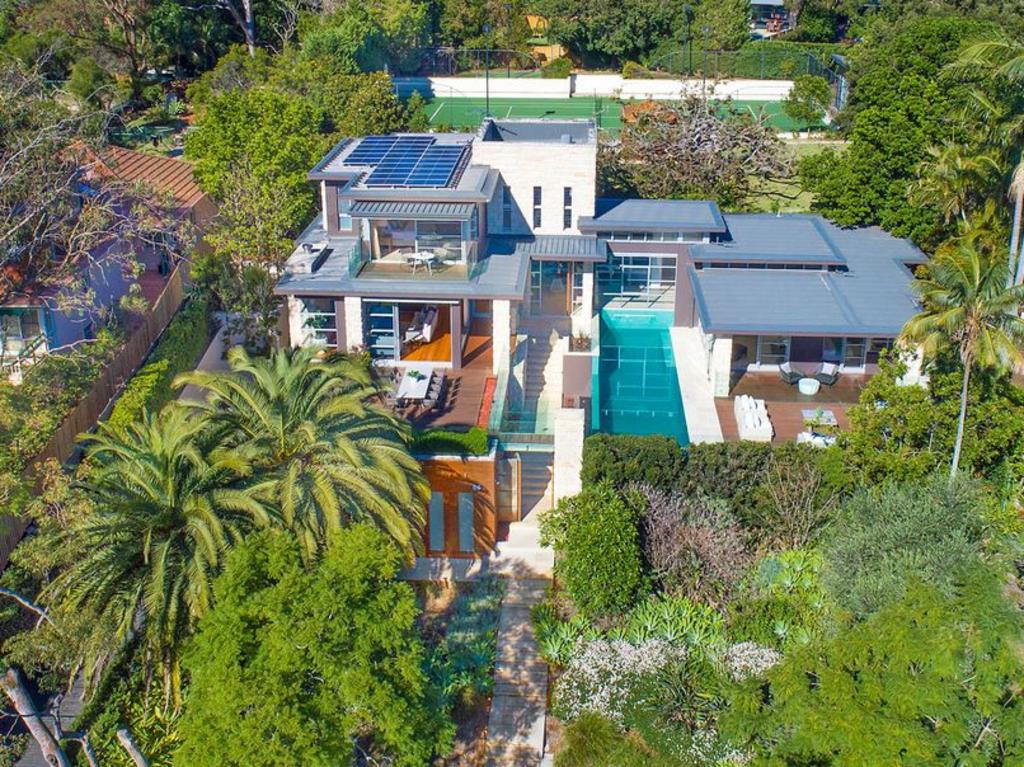
Grand estate – 106-108 Seaforth Cres, Seaforth.
One of Seaforth’s largest estates has a new owner, little more than a year after it last changed hands.
The buyer is a family from Melbourne who are relocating to Sydney and bought the home without seeing it in person, although an extended family member did inspect it on their behalf.
MORE: Reserve smashed by $1m in dramatic scenes
Former Coca Cola chief executive sells mansion
No. 106-108 Seaforth Cres is widely regarded as one of Seaforth’s largest and most luxurious estates. The sale price has not been disclosed, but is understood to be in excess of the most recent guide of $9.5 million.
The property was sold by private treaty through Jake Rowe and Anthony Zakos, of Rowe Partners Real Estate, in conjunction with Max Yue, of Di Jones Chatswood.
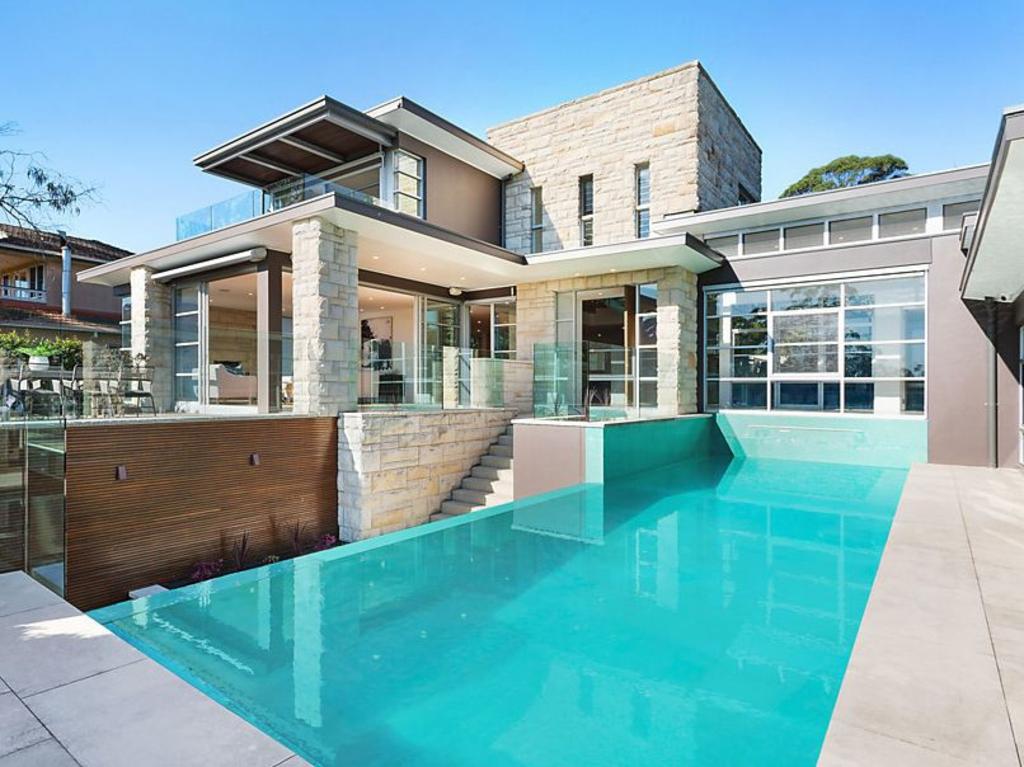
Seaforth stunner.
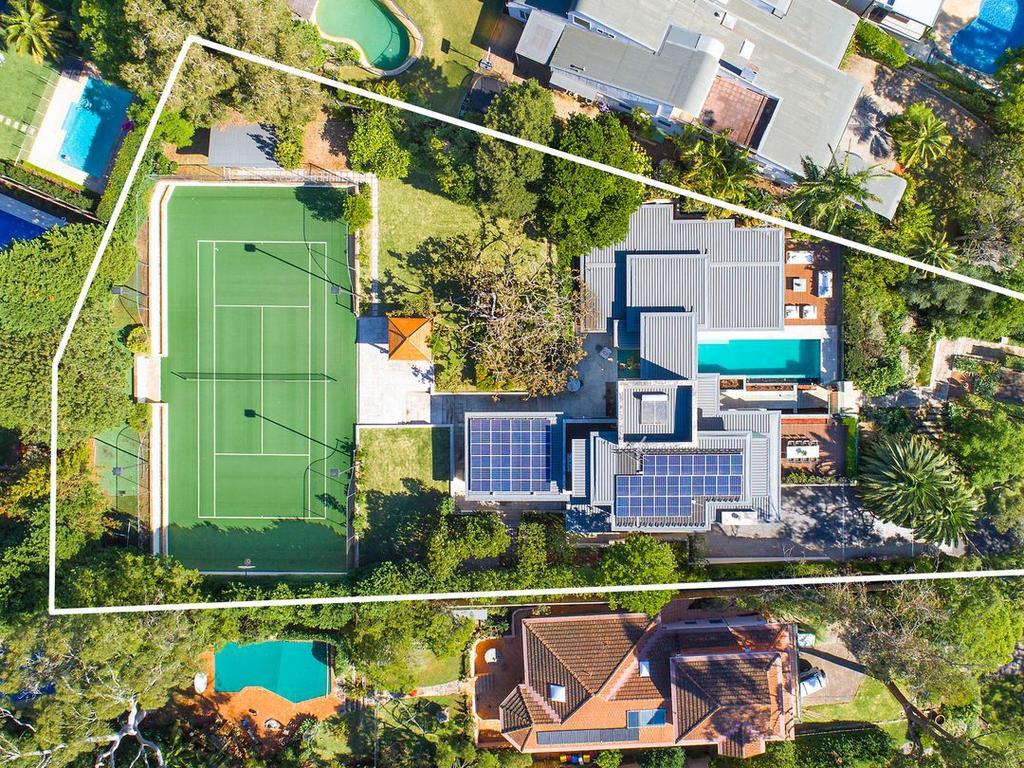
An aerial view.
Mr Rowe said there were two very keen buyers who wanted the luxury home, but it was the Melbourne buyer who dug the deepest – even knowing the COVID lockdown meant they could not see it in person.
A family member visited the property for them, showing the home’s many features on a FaceTime video.
The 2864sqm property last sold in July, 2019, for $8.12 million, according to CoreLogic.
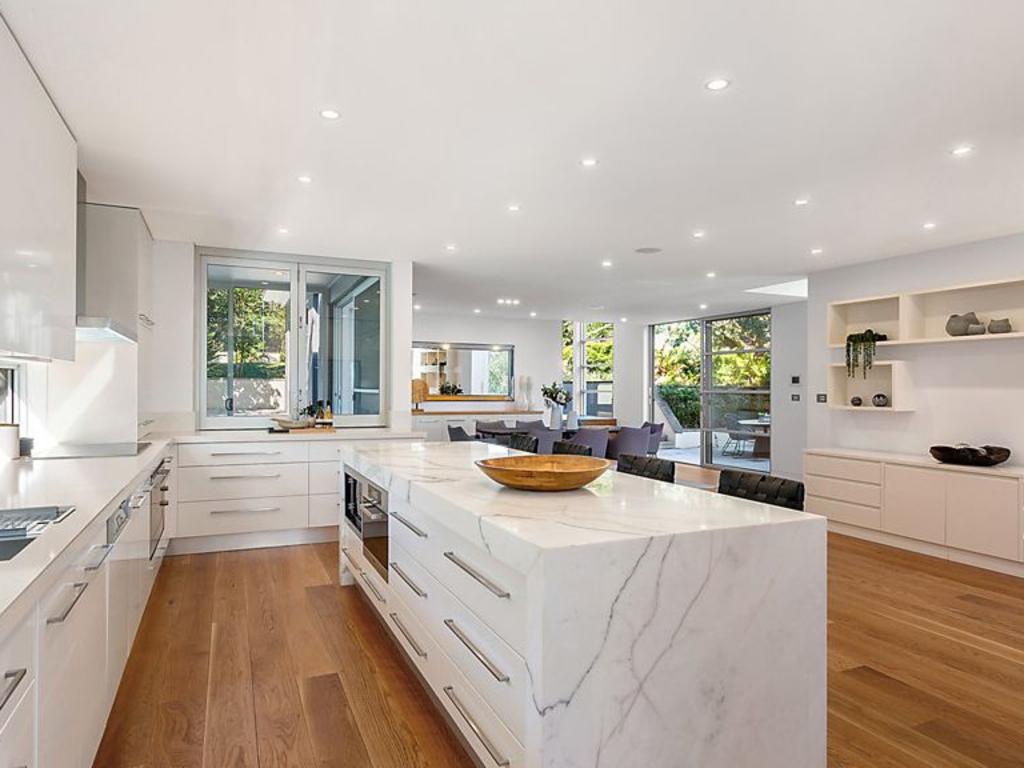
The kitchen.
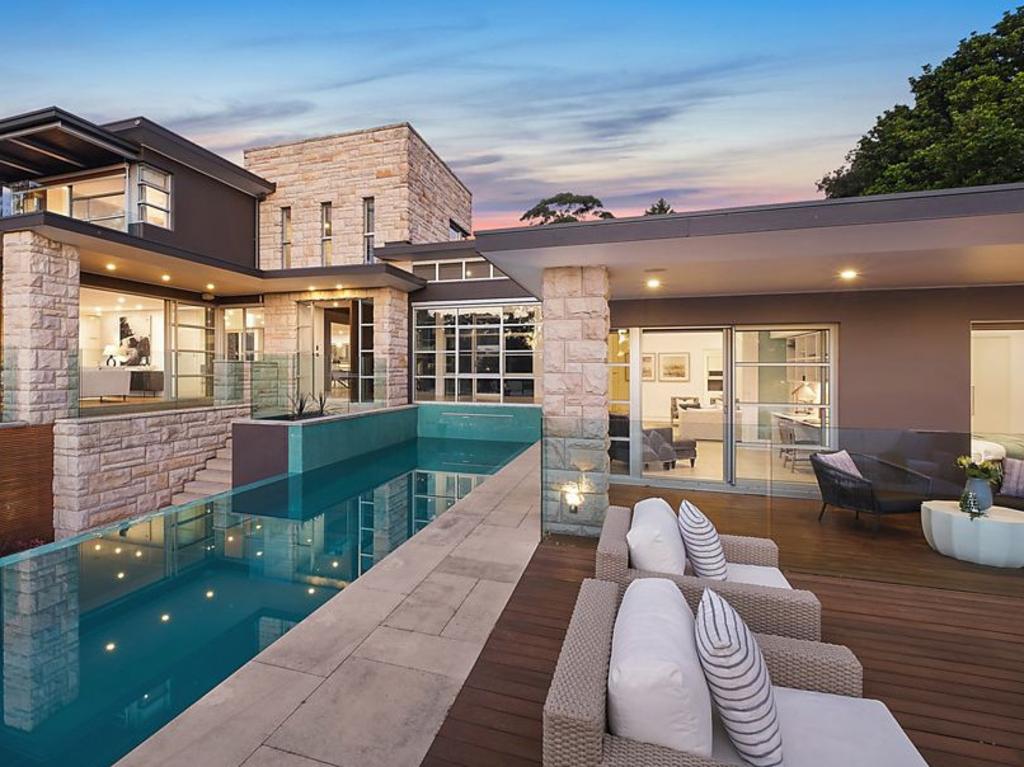
Living on a grand scale.
Mr Rowe said there was plenty of buyer interest in properties on the northern beaches at that price point.
“The prestige market is really strong at the moment,” he said.
The property comes with everything you would expect from a resort-style estate, including a floodlit championship-sized tennis court, heated in-ground swimming pool, putting greens and sprawling gardens that make the most of the Middle Harbour views.
The house itself was designed by renowned Castlepeake Architects, and has some 570sqm of internal living space.
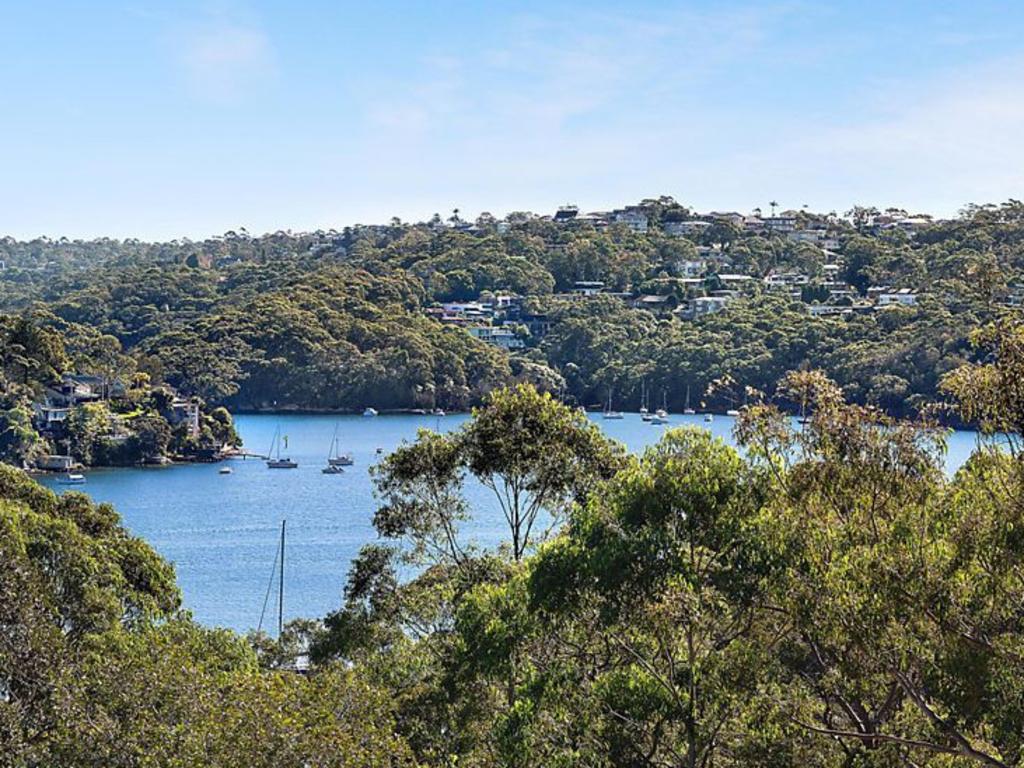
The view.
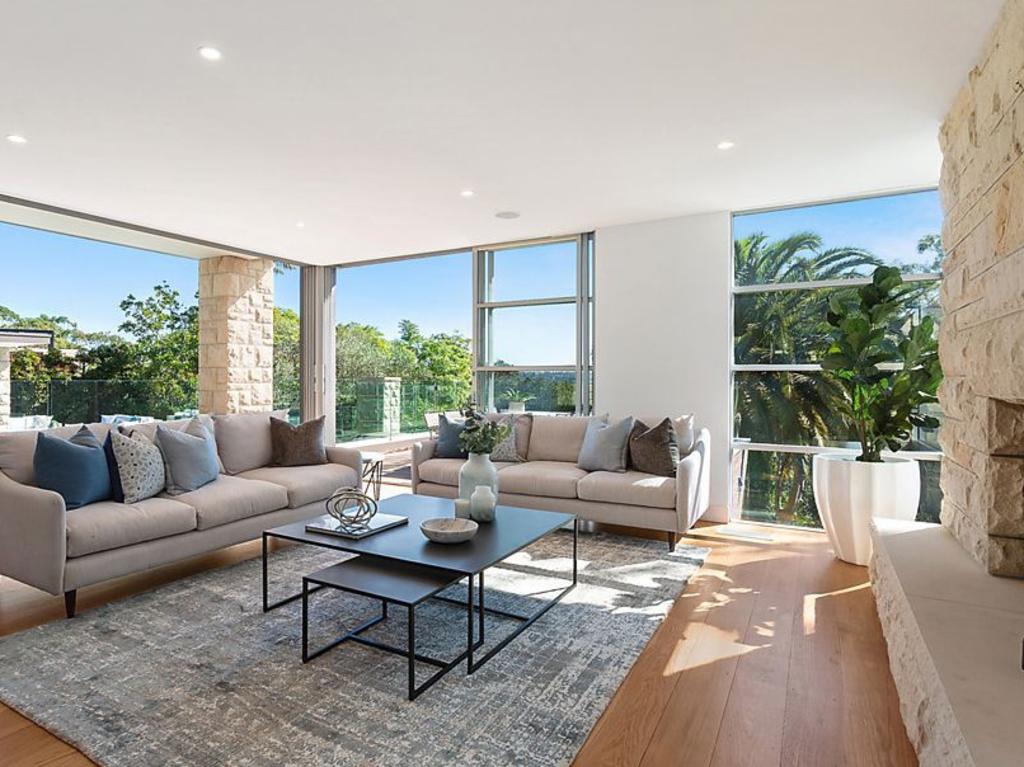
There are numerous living spaces.
The versatile floorplan has numerous formal and casual living and dining spaces, which flow out to the many terraces and decks. The kitchen has a calacatta island bench with Miele appliances.
The main bedroom takes up most of the upper floor, with a walk-in wardrobe, ensuite and private deck. There is another bedroom on this level, and that also has access to its own private deck.
Other features of the five-bedroom home include a media room, home office, fully self-contained guest studio accommodation, ducted airconditioning, security system, surround sound system, gym or games room plus four-car garage and storeroom with internal access.
The property is close Sangrado Park, buses and Seaforth Village.
SIGN UP HERE FOR THE NSW REAL ESTATE NEWSLETTER
The post One of Seaforth’s grandest estates sells for more than $9.5 million appeared first on realestate.com.au.
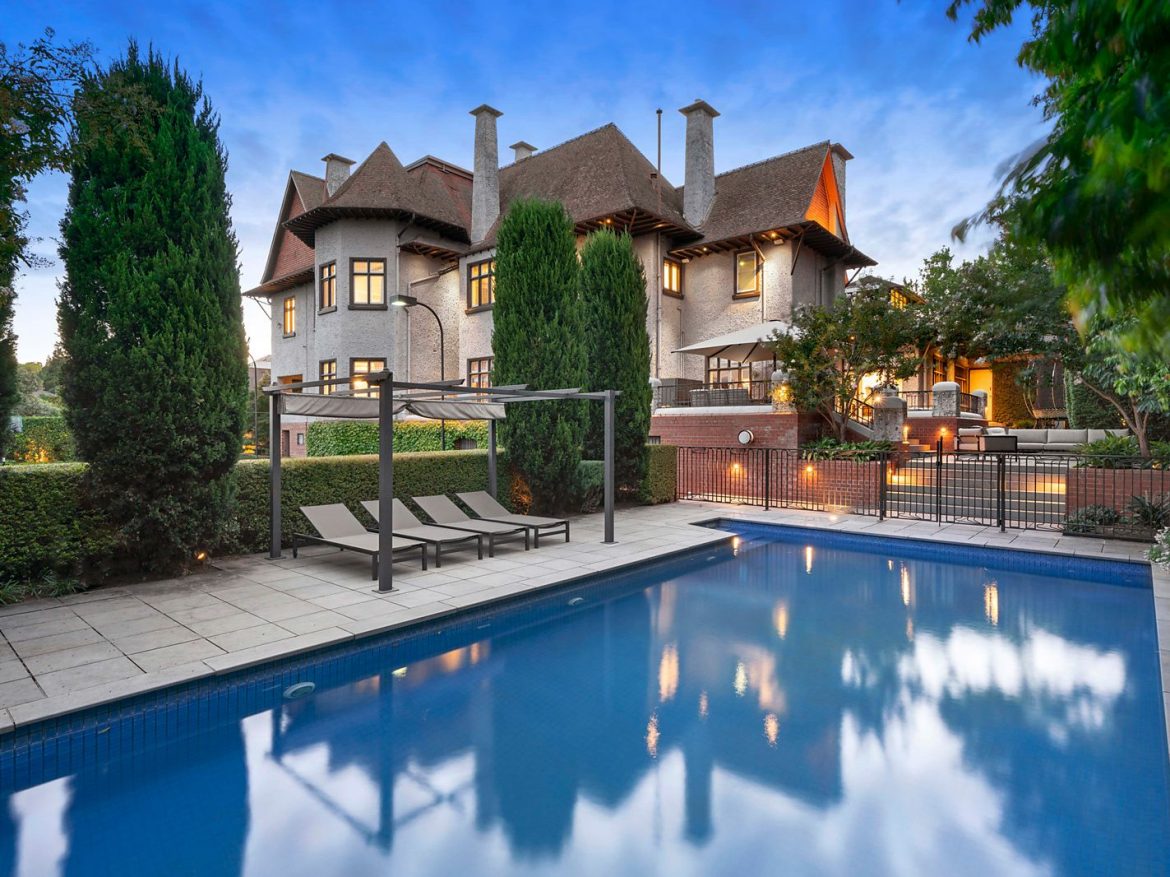
Australia’s prestige property market is flourishing despite the global health pandemic and economic recession, with some of the nation’s most exclusive suburbs recording significant price growth in the past year.
Data compiled by realestate.com.au shows premium property remained buoyant in the 12 months to July.
Even the top end of the Melbourne market performed well with the elite suburb of Toorak sustaining almost 20% growth to net a median price of $4.575 million in the 12-month period.
At the same time, the Northern Beaches suburb of Clontarf in Sydney recorded 27.6% growth to land a median price of $3.8 million.
- Use the interactive below to discover the top 10 most expensive suburbs in each capital city in 2020
Nerida Conisbee, chief economist at realestate.com.au, said prestige property had fared well despite the challenging economic climate and it was likely the most expensive suburbs would retain value best during the recession.
“What is happening across Australia is a really strong shift to premium properties. We are seeing some decent price growth in premium suburbs,” Ms Conisbee said.
“The best performers continue to be premium suburbs. To-date, most well paid, white-collar professionals are still employed and may have only had minor cuts to their incomes.
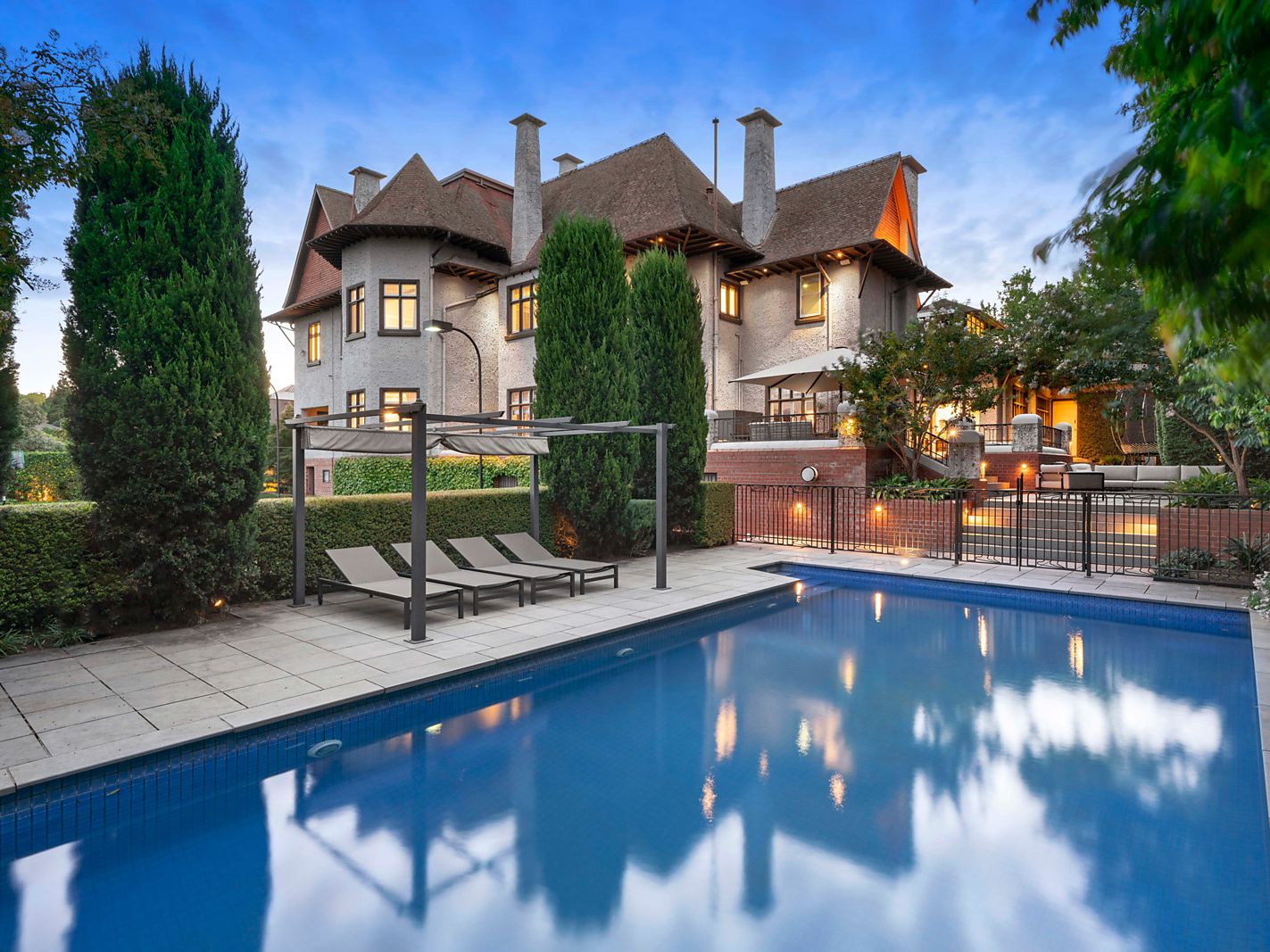
The exclusive Melbourne suburb of Toorak is known for its grand homes. Picture: realestate.com.au/buy
“When we look at search data, we can clearly see that people are still very focussed on premium suburbs. It’s the flight to quality, people see them as holding value better, we haven’t seen much employment loss in white-collar employment as yet and just that general level of confidence.”
“They aren’t spending money. You can’t travel, you can’t really go out. Not only are there people who are earning the same sort of money they were before COVID, but they’re also not spending much so their level of savings is higher.”
The realestate.com.au data set is based on median house prices in suburbs with at least 30 sales in the past 12 months, but does not include some tightly held locations including Peppermint Grove in Perth, Point Piper in Sydney and Teneriffe in Brisbane, which did not meet the minimum number of sales to qualify for the data set this year.
Low supply is driving up prices
Matt Ettia, from Biller Property, Double Bay, said a shortage of prestige listings was fuelling more competition at the upper end of the market.
“There’s a real lack of choice at the moment and I really think that’s what’s driving the top end of the market,” Mr Ettia said.
He said the strong demand for homes in Bellevue Hill was evident this week with the sale of the spectacular mansion at 42 Drumalbyn Road, which was snapped up prior to auction on Tuesday for around $6.5 million.
More than 80 groups inspected the property during the four-week marketing campaign, he said.
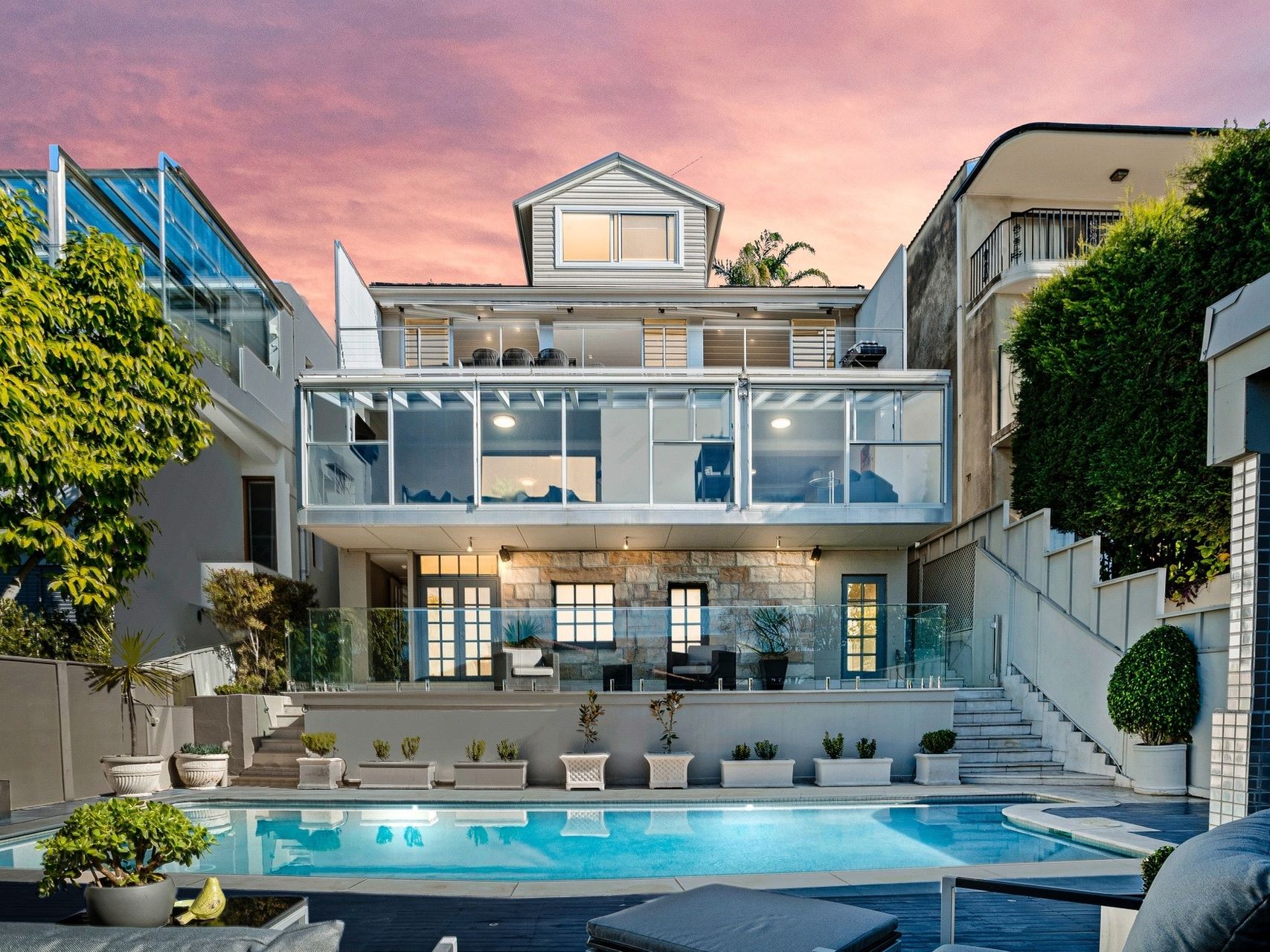
This mansion in Sydney’s Bellevue Hill sold for around $6.5 million prior to auction. Picture: realestate.com.au/sold
Mr Ettia said the property was the only one in the $6 million to $7 million price point in Bellevue Hill before its sale.
“Everything that is on the market in that sector is selling and auctions are doing well, too. Things are moving and I think it’s purely fuelled by the lack of choice,” he said.
“It will be interesting to see what happens in spring. How much stock comes to market will determine how strong the market is. If there’s too much, it will dilute things and if it continues to be scarce, I think the market and prices will only get stronger.”
Canberra agent Mario Sanfrancesco, whose name is synonymous with selling exclusive homes, said the prestige market in the nation’s capital was robust despite a lack of listings.
“The Canberra market is probably as strong as it’s ever been,” said Mr Sanfrancesco, from Blackshaw, Manuka.
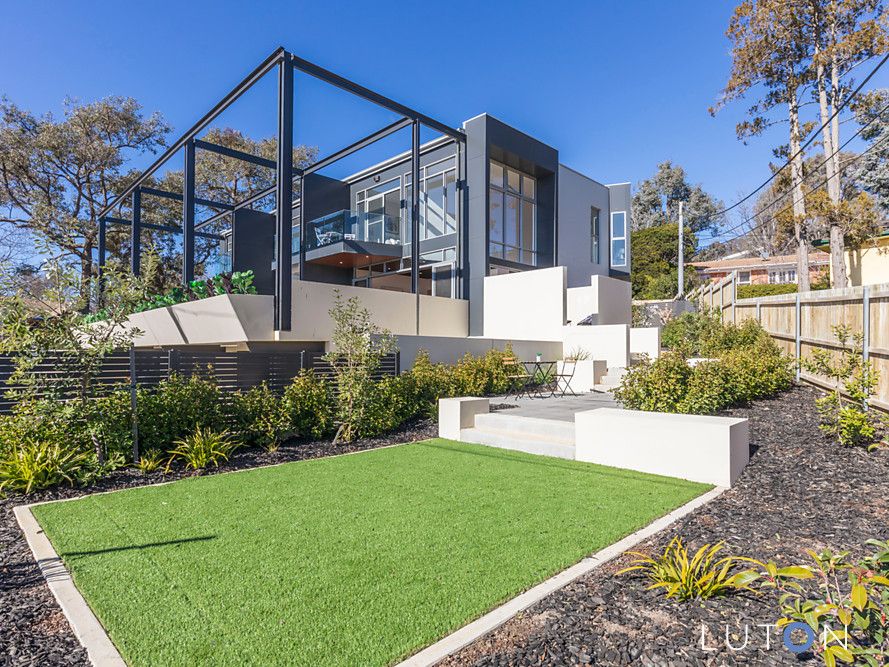
Canberra’s Red Hill ranked as the most expensive suburb in that city according to realestate.com.au data. Picture: realestate.com.au/buy
“The stock levels are very tight, there’s very few listings of that calibre available on the market and those that have come on have been attracting good interest with fewer days on market.”
Mr Sanfrancesco said off market sales were more prevalent with some sellers reluctant to list in the uncertain market.
He sold 38 Parkhill Street in Pearce off market for just over $3 million, setting a new record for the suburb by $700,000.
“The entire inner south, Forrest, Old Red Hill, Griffith and parts of Narrabundah are highly sought after. But that’s extending to the fringes too. I recently sold a property in Pearce in Woden [Valley], which broke a record for the suburb. The previous record was $2.3 million and this property sold for just over $3 million,” Mr Sanfrancesco said.
“The market is picking up slightly but it has been very tight this whole year. In some of those areas stock levels would be down by 50% of those top properties, but I’d expect that’s going to loosen up a bit over the next six to eight weeks.”
The most expensive suburbs city-by-city:
Toorak, Melbourne
Toorak and Canterbury retained the crown as the top two most expensive suburbs in Melbourne, sustaining significant growth of 19% and 9% respectively.
Toorak holds a median price of $4.575 million while Canterbury sits at $2.725 million.
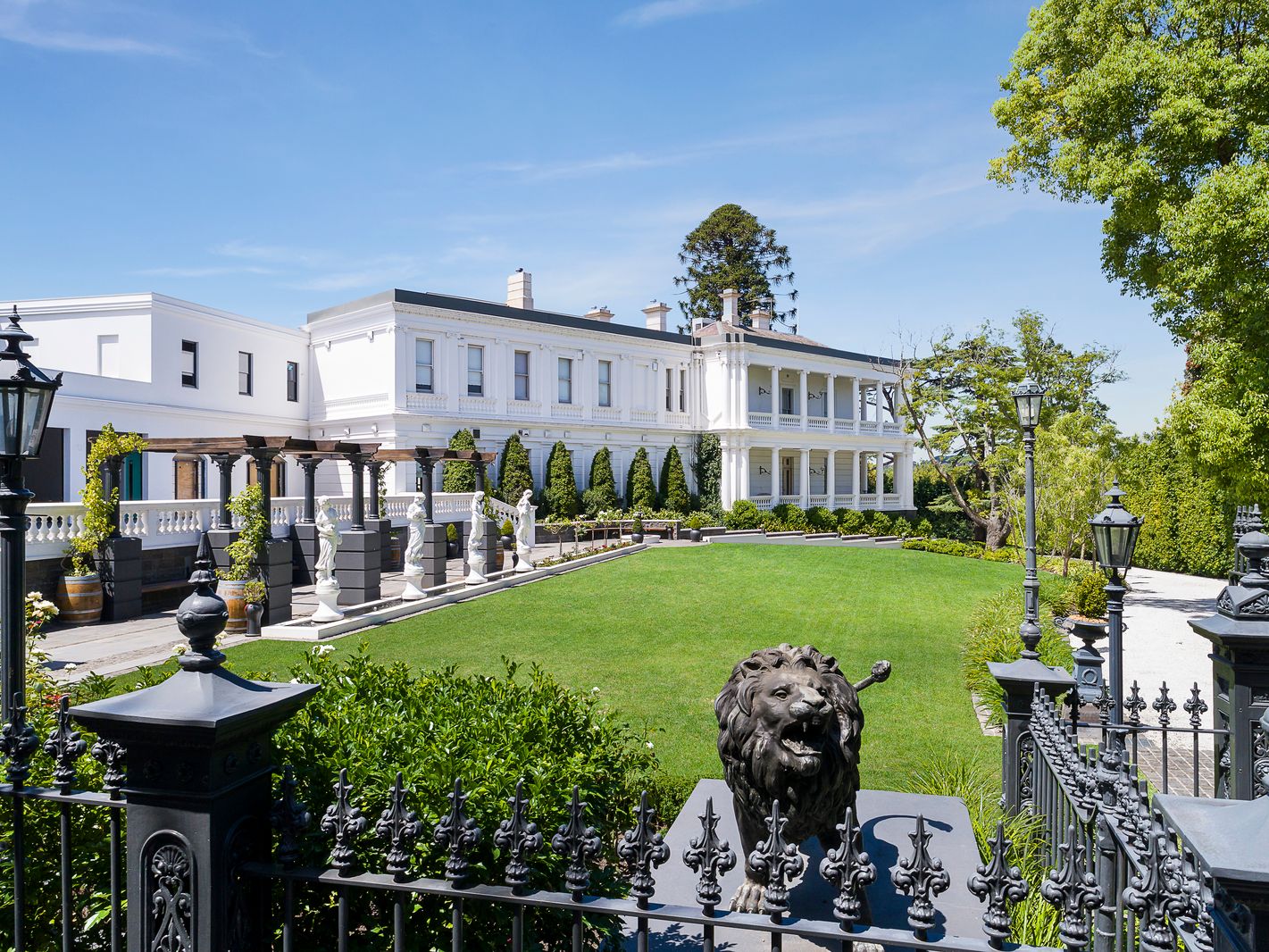
Properties like this nine-bedroom home at 16 Balwyn Road Canterbury are in demand. Picture: realestate.com.au/buy
Brighton surged from fifth position to third with 9% growth and a median of $2.72 million, while Armadale took out number five with 9% growth and a median of $2.6 million.
Balwyn house prices experienced a 1% drop, pushing the suburb from third position last year to number eight this year.
Bellevue Hill, Sydney
The strong demand for homes in Bellevue Hill was evident this week with the sale of the spectacular mansion at 42 Drumalbyn Road, which was snapped up prior to auction on Tuesday for around $6.5 million.
Bellevue Hill jumped to top spot in the year to July with growth of 7%. It secured a median price of $6 million, knocking Vaucluse from top billing, which experienced a 17% drop in growth to $5.2 million.
Clontarf came in at number three with median house price growth of 28% to $3.8 million.
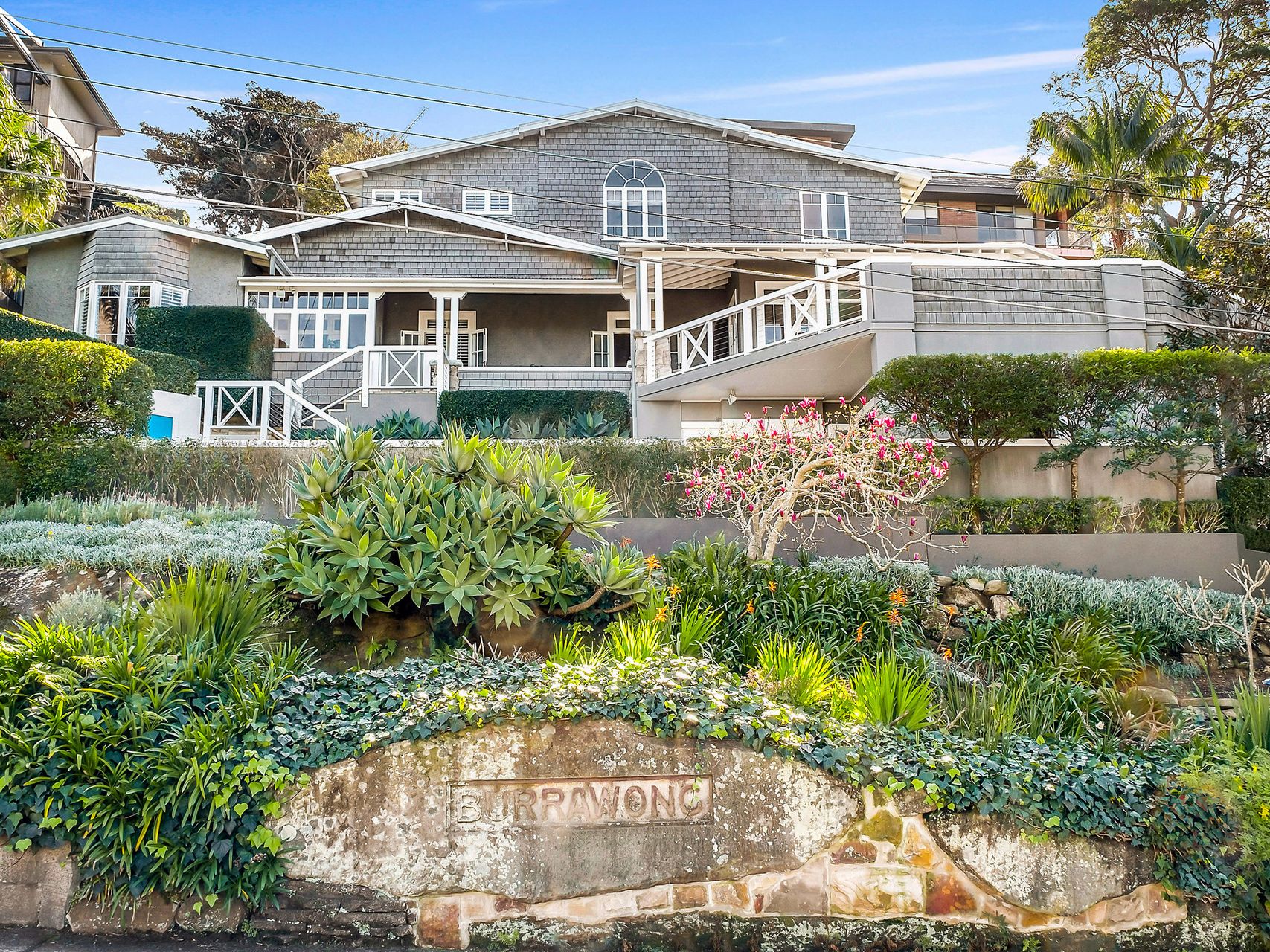
The median house price in Sydney’s Clontarf shot up by 28% in the 12 months to July 2020. Picture: realestate.com.au/buy
Point Piper, which has traditionally been very tightly held, did not attract enough sales to be included in the realestate.com.au figures.
New Farm, Brisbane
New Farm remained the most expensive suburb in Brisbane in 2020 with growth of 14% to a median price of $1.62 million.
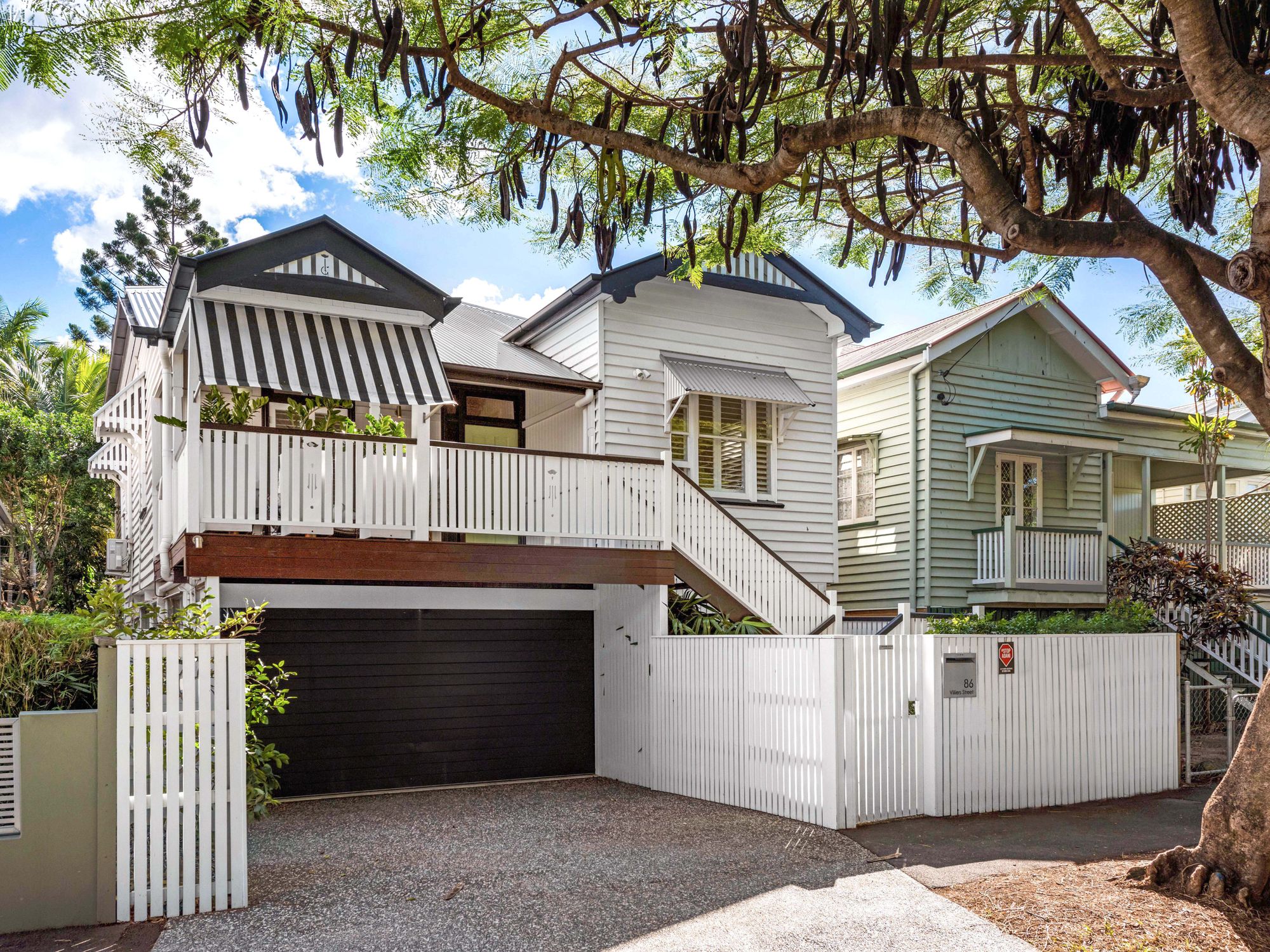
New Farm kept top spot as most expensive suburb in Brisbane in 2020. Picture: realestate.com.au/buy
Bulimba dropped to number three with a median price decline of 4% to $1.31 million.
St Lucia ranked in fourth spot with growth of 19% to $1.3 million.
Teneriffe, which has traditionally been very tightly held, did not attract enough sales to be included in the realestate.com.au data set for 2020.
Dalkeith, Perth
Dalkeith has been leading the way in the Perth market, with the suburb securing a $27.5 million sale this year.
The sale, which is likely to be the top sale for the city in 2020, was of 89 Watkins Road – the former home of the late high-profile businessman Alan Bond and his wife, Eileen.
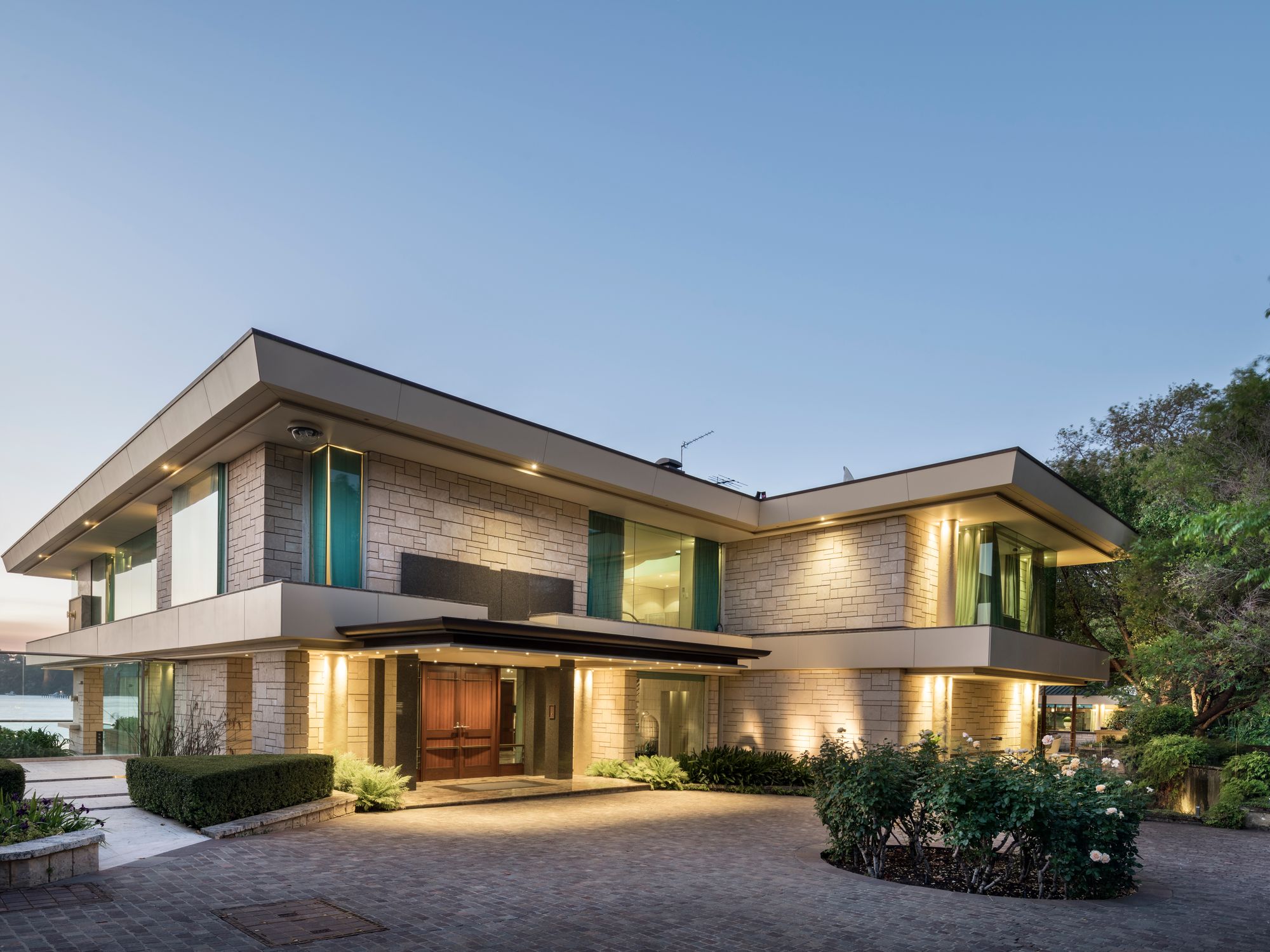
The late Alan Bond’s former home in Dalkeith recently sold for a record $27.5 million. Picture: realestate.com.au/sold
The realestate.com.au data shows Dalkeith had no growth in the 12 months to July with the median house price remaining at $2.3 million.
Cottesloe’s prices took a backwards step, dropping 8% to $1.917 million.
Peppermint Grove, which has traditionally been very tightly held, did not attract enough sales to be included in the realestate.com.au figures.
Red, Hill, Canberra
The exclusive locale of Red Hill sustained 10% growth in the past year to take out prime position with a median house price of $1.6 million.
Red Hill ousted Yarralumla from top pegging, shuffling the lakeside suburb to number four after a drop of 14%. The median house price for Yarralumla now sits at $1.35 million.
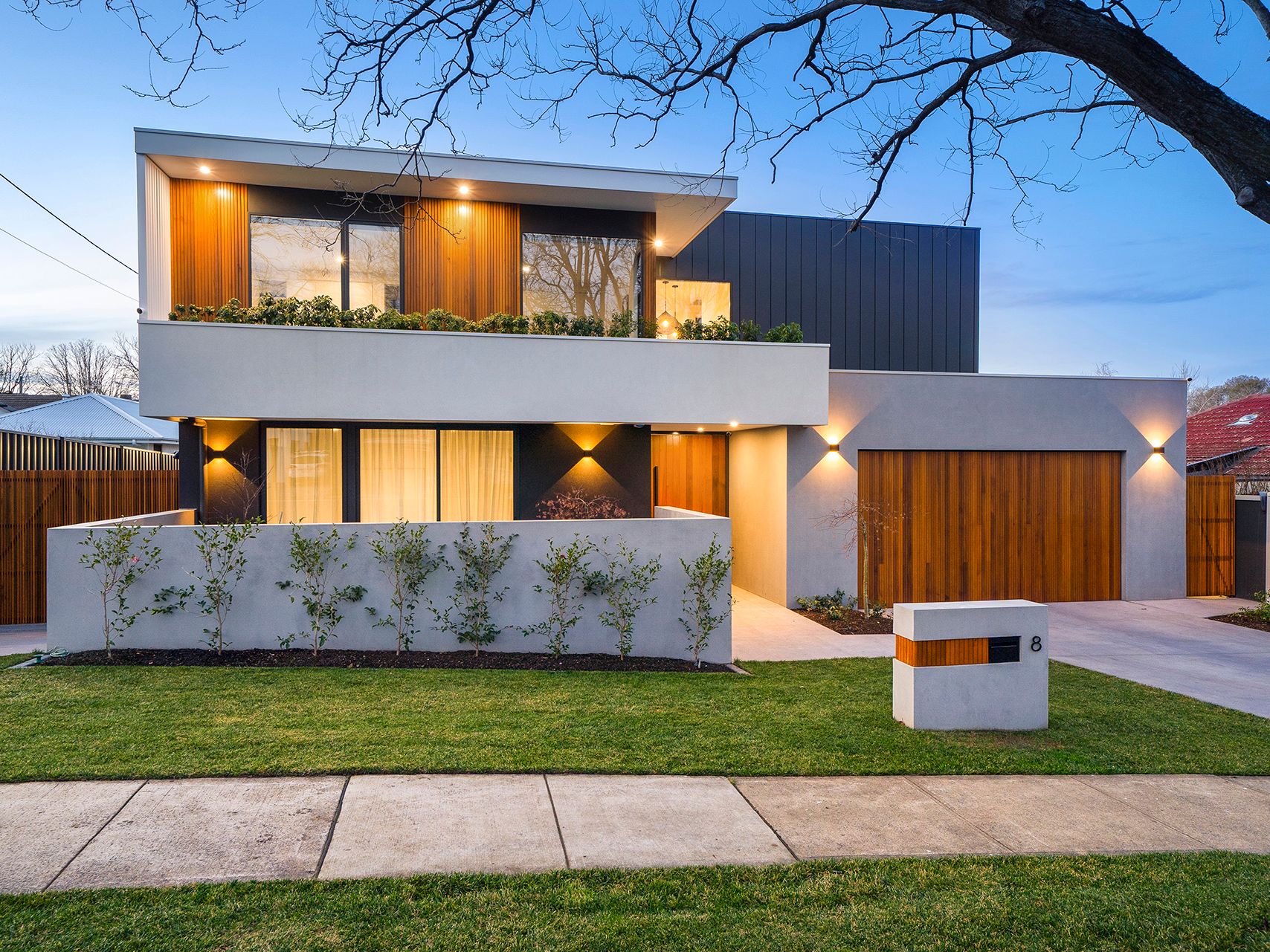
The prestige Canberra suburb of Yarralumla fell from top spot to fourth most expensive suburb in the nation’s capital. Picture: realestate.com.au/sold
Red HIll, which has traditionally been very tightly held, did not attract enough sales to be included in the realestate.com.au figures.
St Peters, Adelaide
St Peters, which was the third most expensive suburb in Adelaide in 2019, took out top spot in 2020 with median house price growth of 19% to $1.415 million.
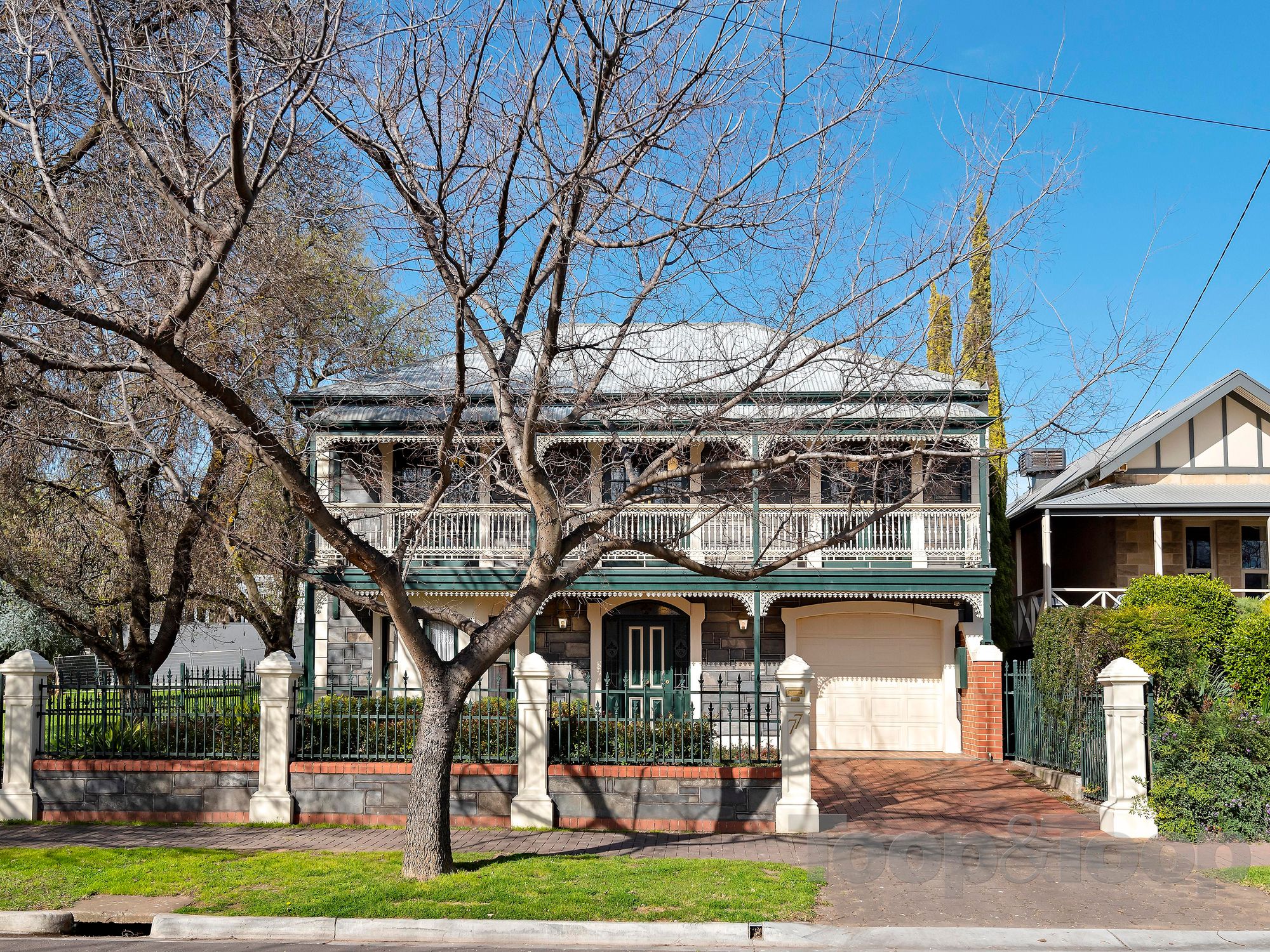
Adelaide’s St Peters jumped from 3rd most expensive suburb in 2019 to number one in 2020. Picture: realestate.com.au/buy
Despite price declines of 7%, Malvern came in at number three with a median house price of $1.212 million.
Lyons, Darwin
While there have been strong predictions for Darwin’s property market, data compiled by realestate.com.au shows three of the Top End’s most expensive suburbs – Lyons, Rosebery and Durack – experienced median house price drops.
Sandy Bay, Hobart
High flying stalwart, Sandy Bay, retained top spot even with a small jump of 3% growth to a median price of $940,500.
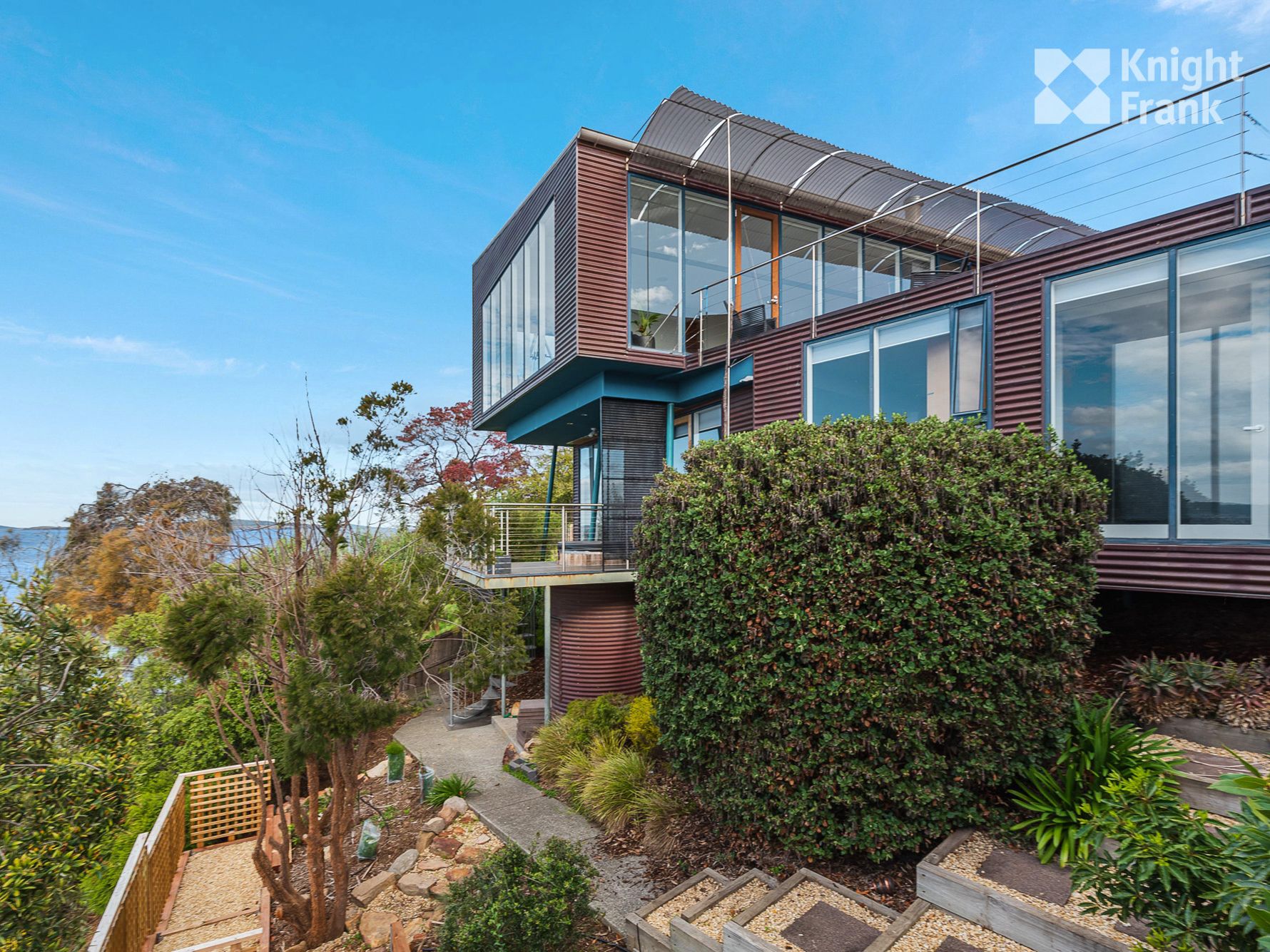
The desirable suburb of Sandy Bay in Hobart kept its number one ranking as most pricey suburb. Picture: realestate.com.au/buy
Acton Park came in at number two with 1% growth to $830,000, while Taroona and Bellerive also featured in the top five most expensive suburbs in Hobart, despite Taroona experiencing a 3% drop to a median price of $715,000 and Bellerive’s median surging by 18% to $700,000.
The post Prices swell in Australia’s most expensive suburbs despite pandemic appeared first on realestate.com.au.
